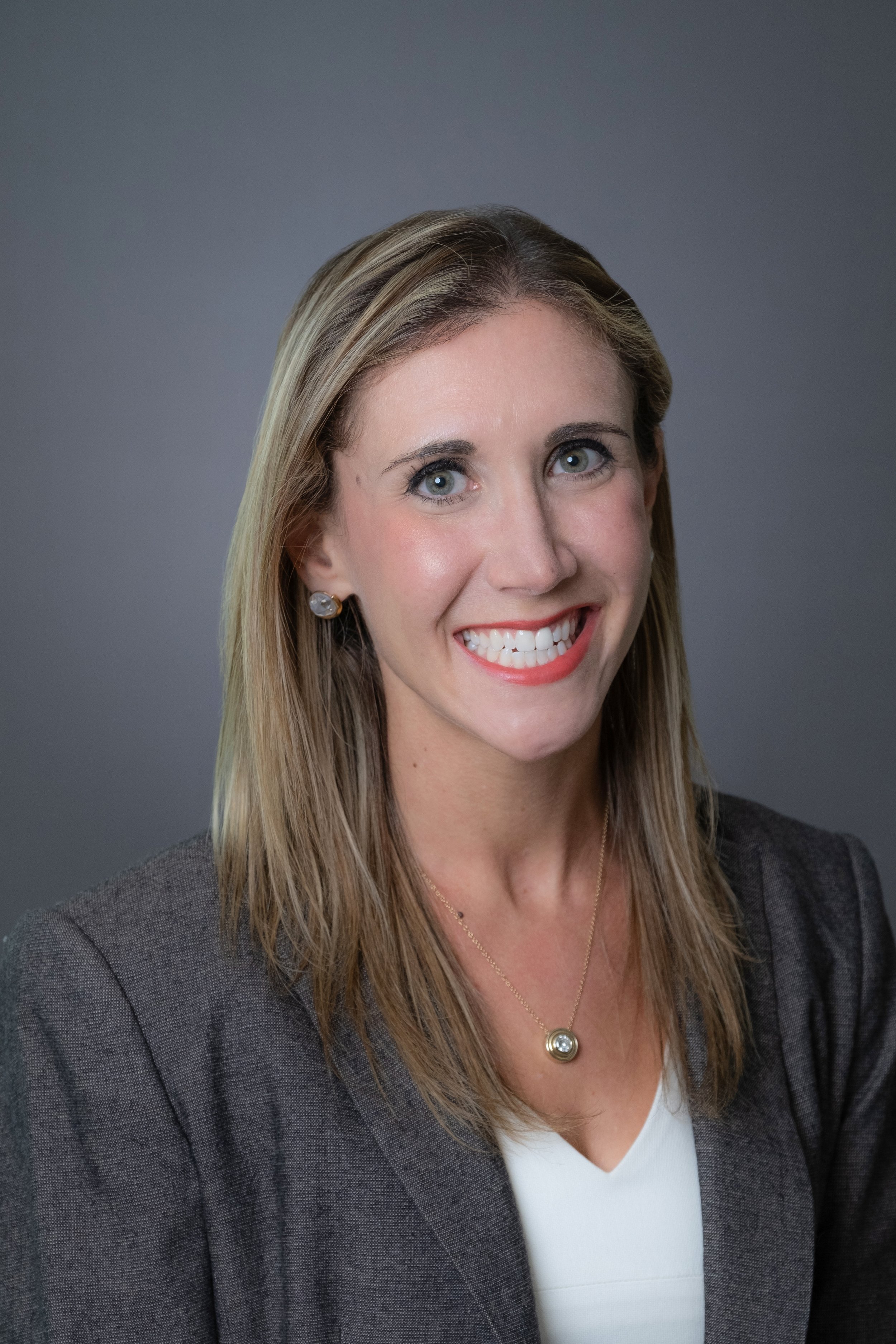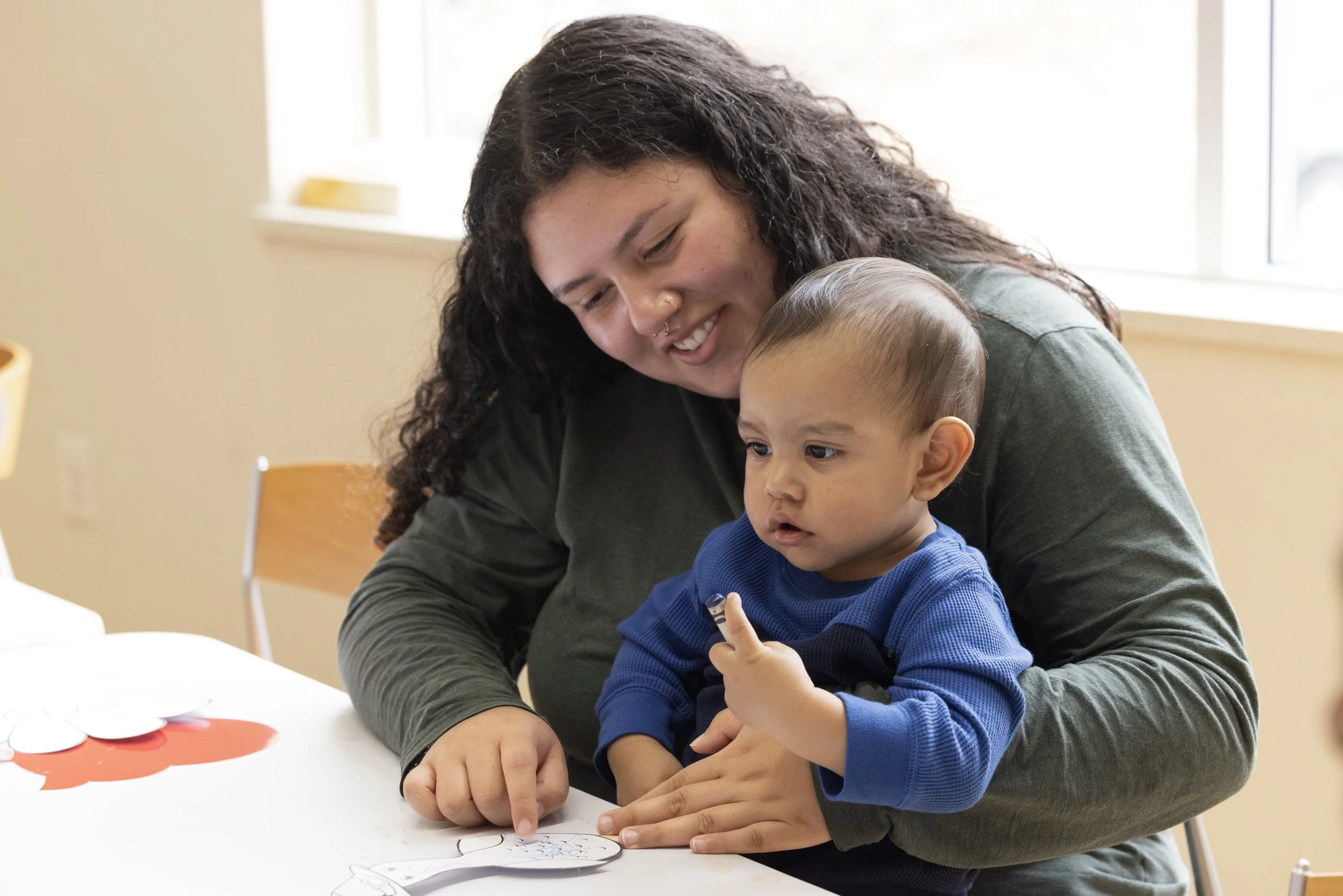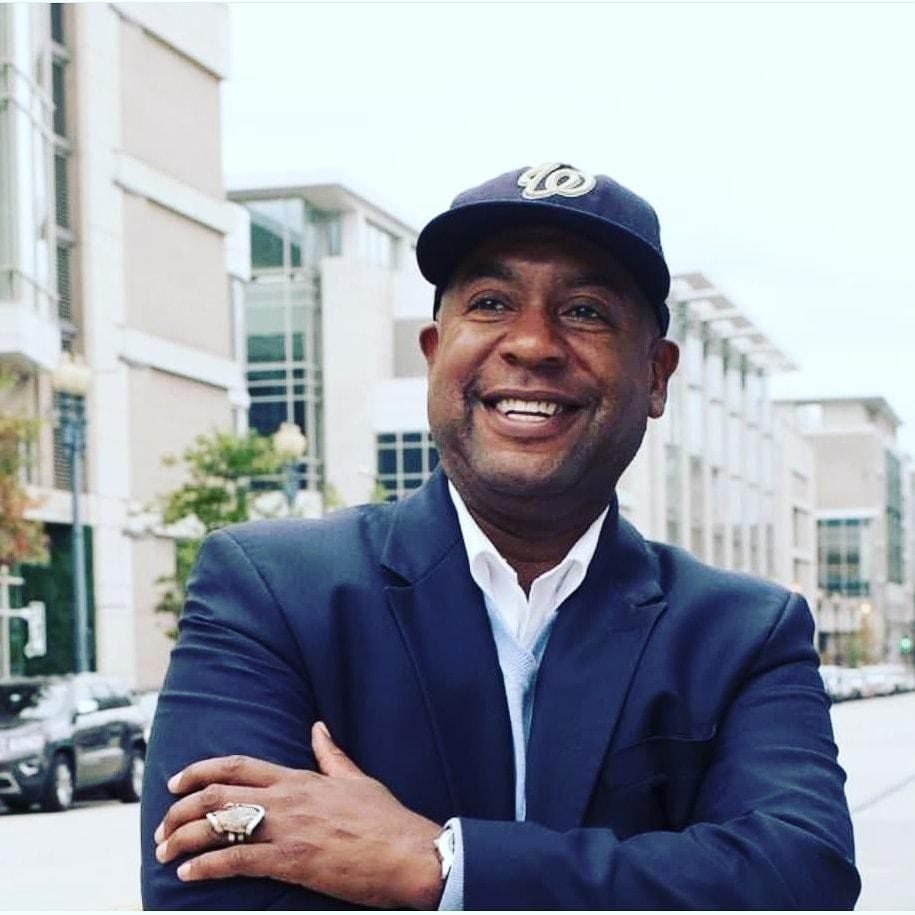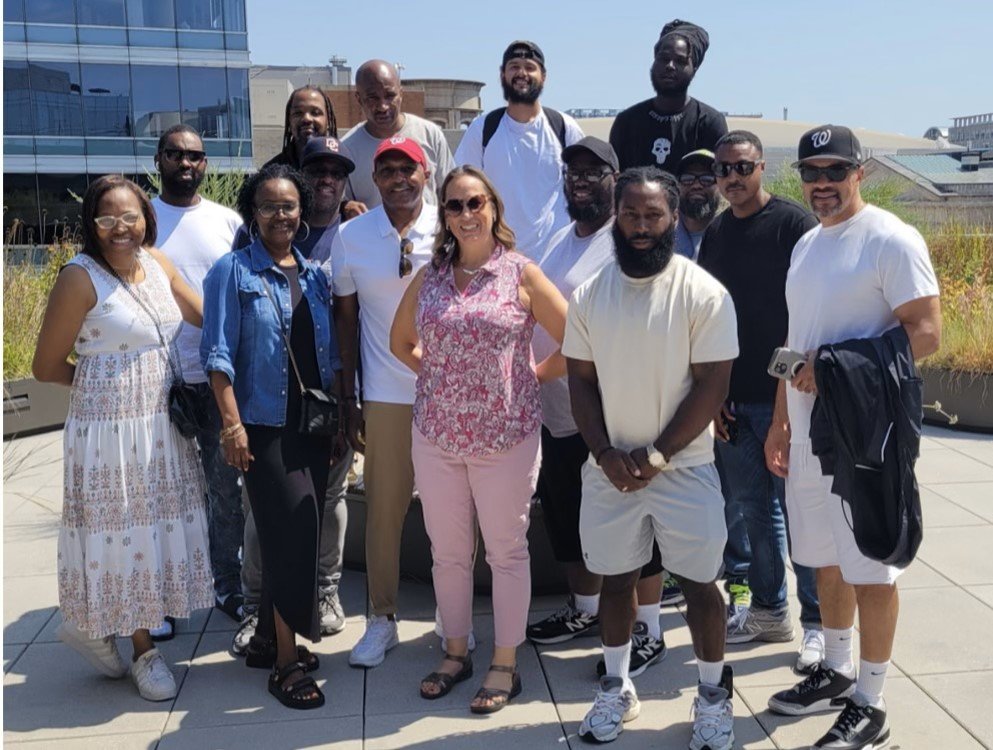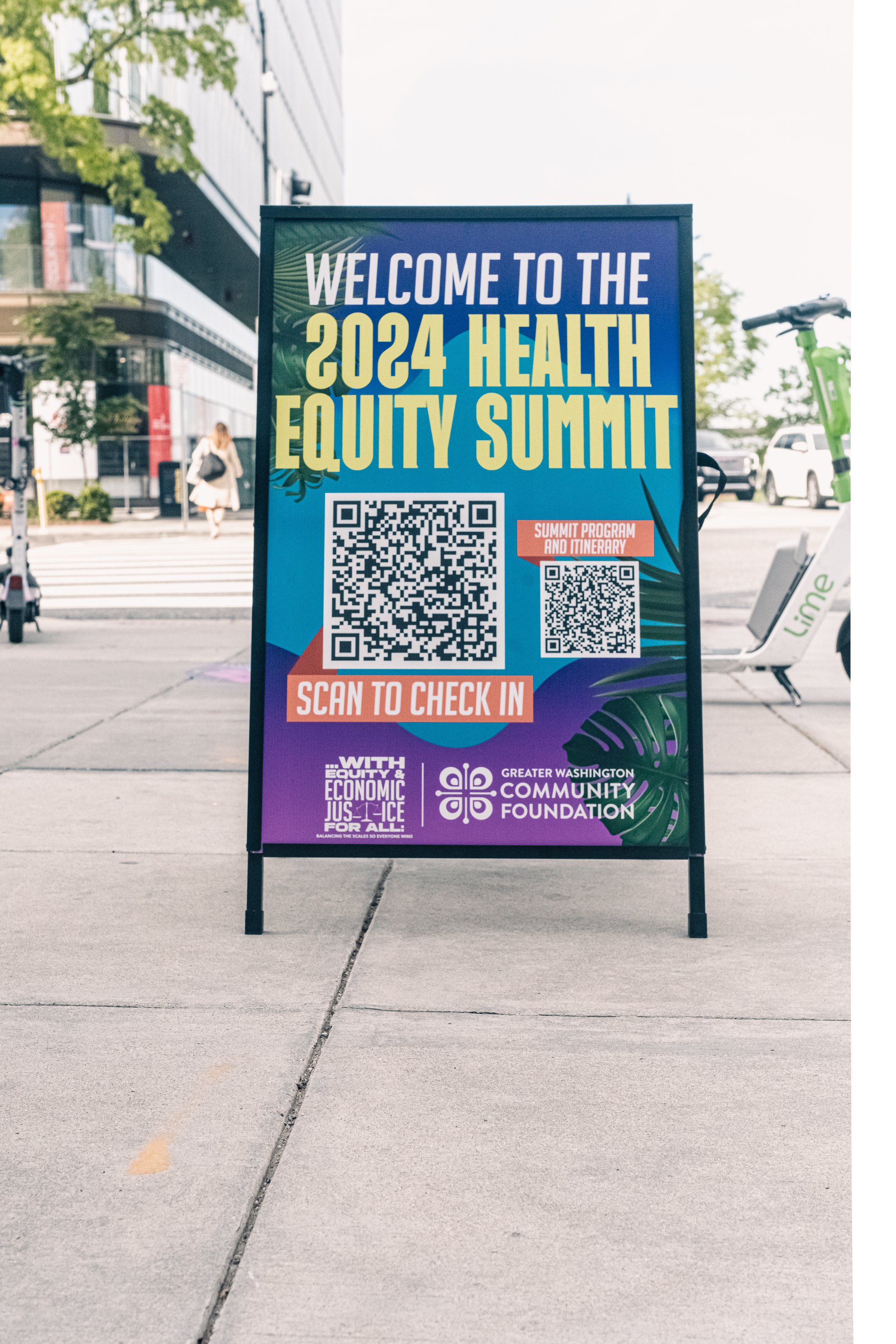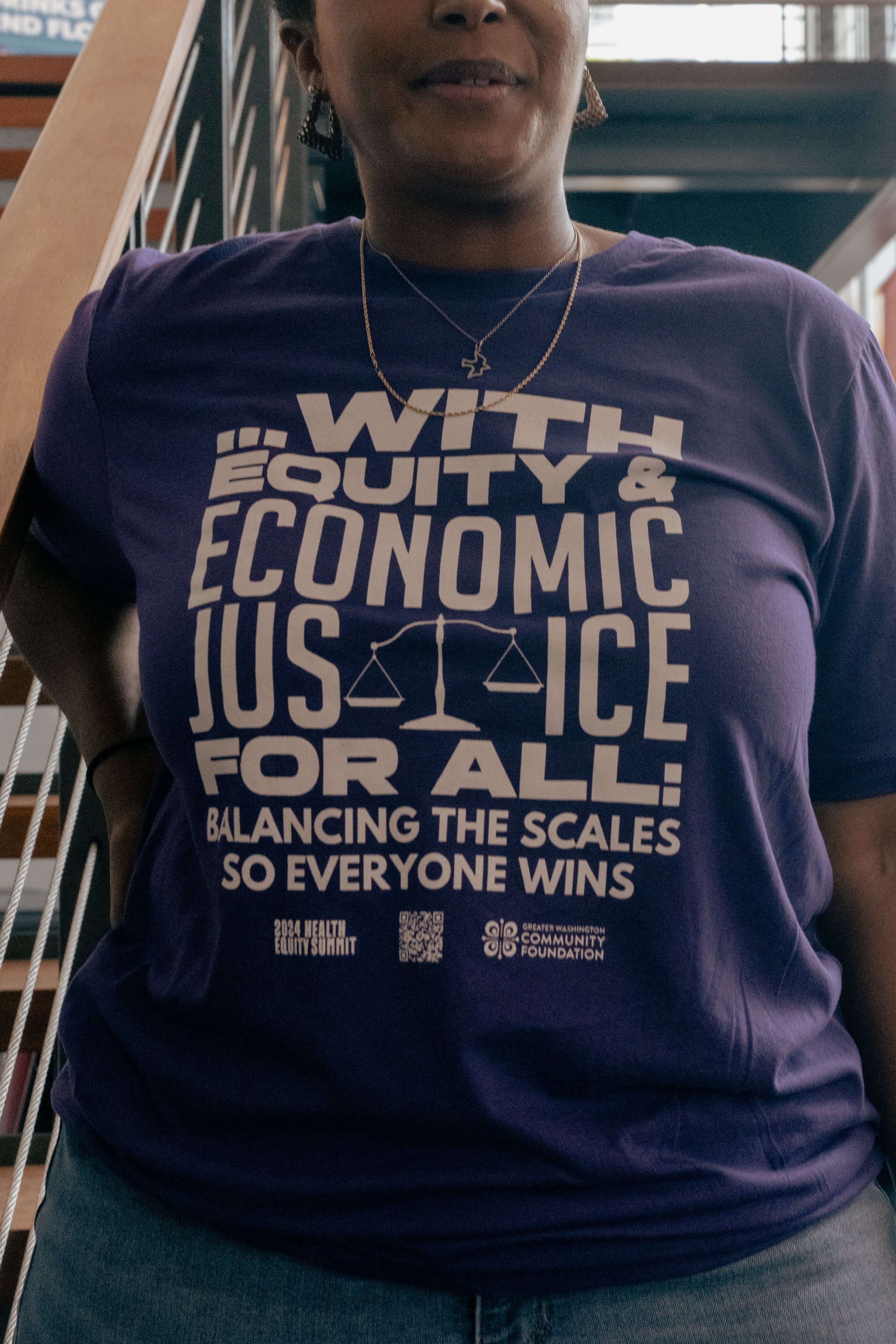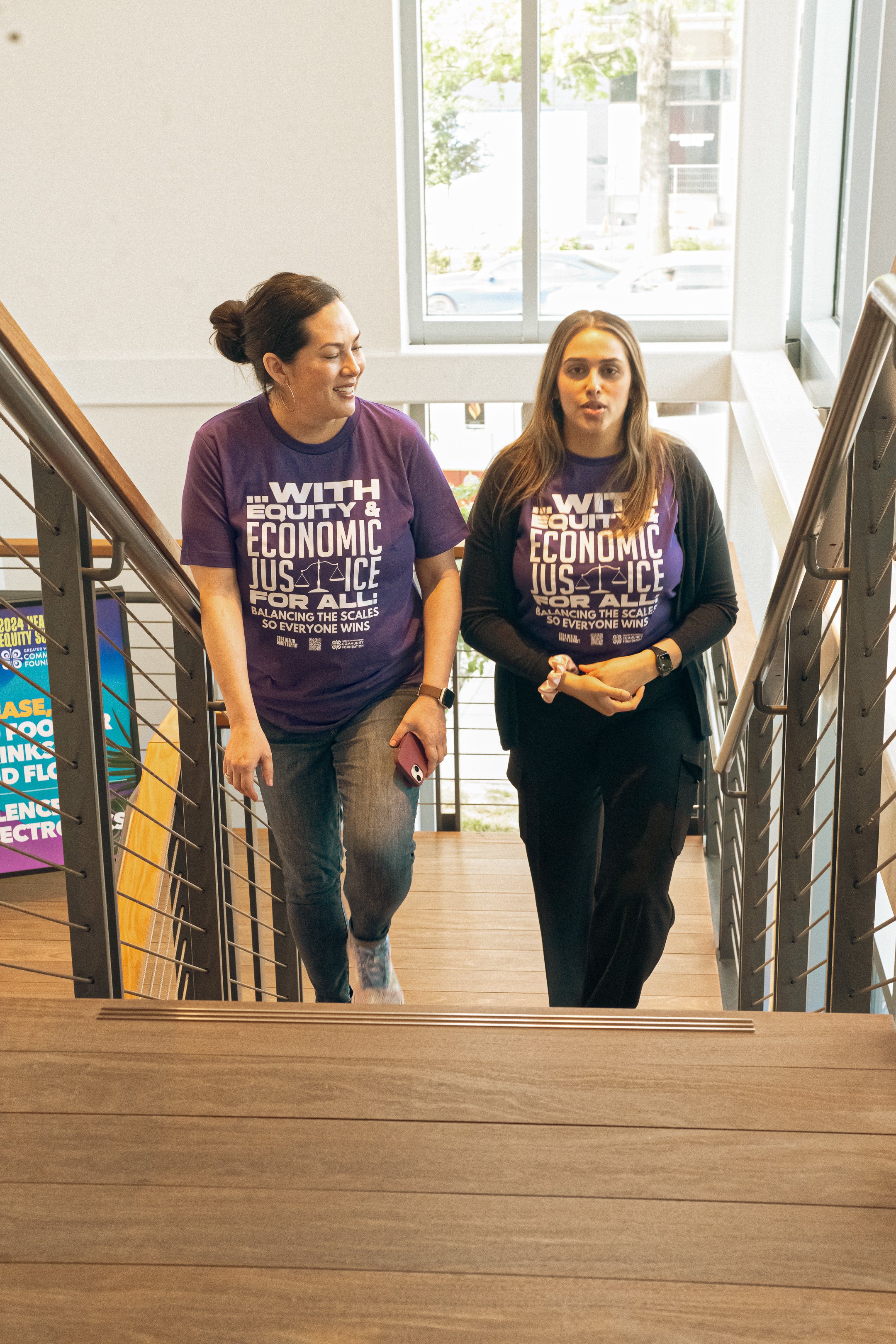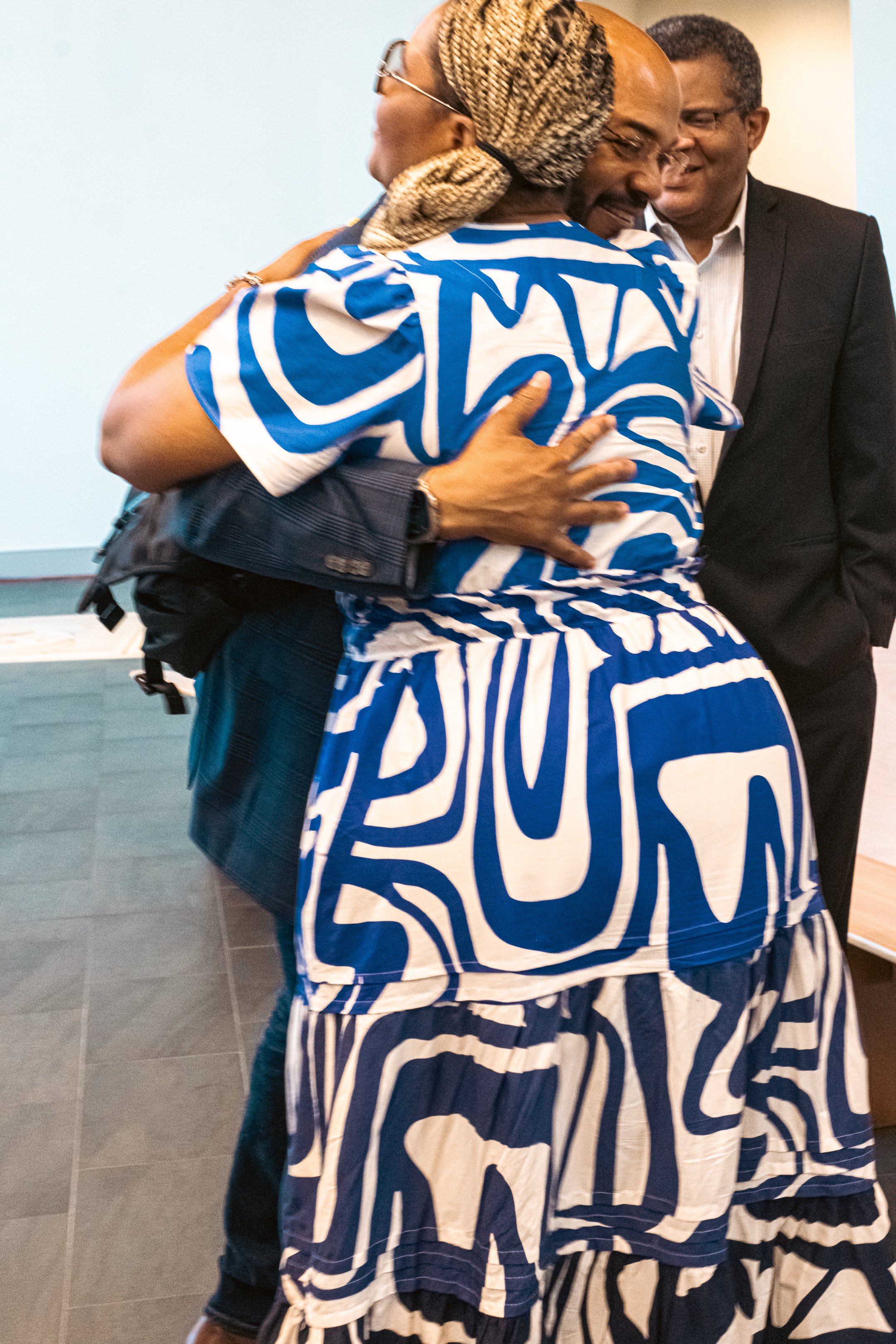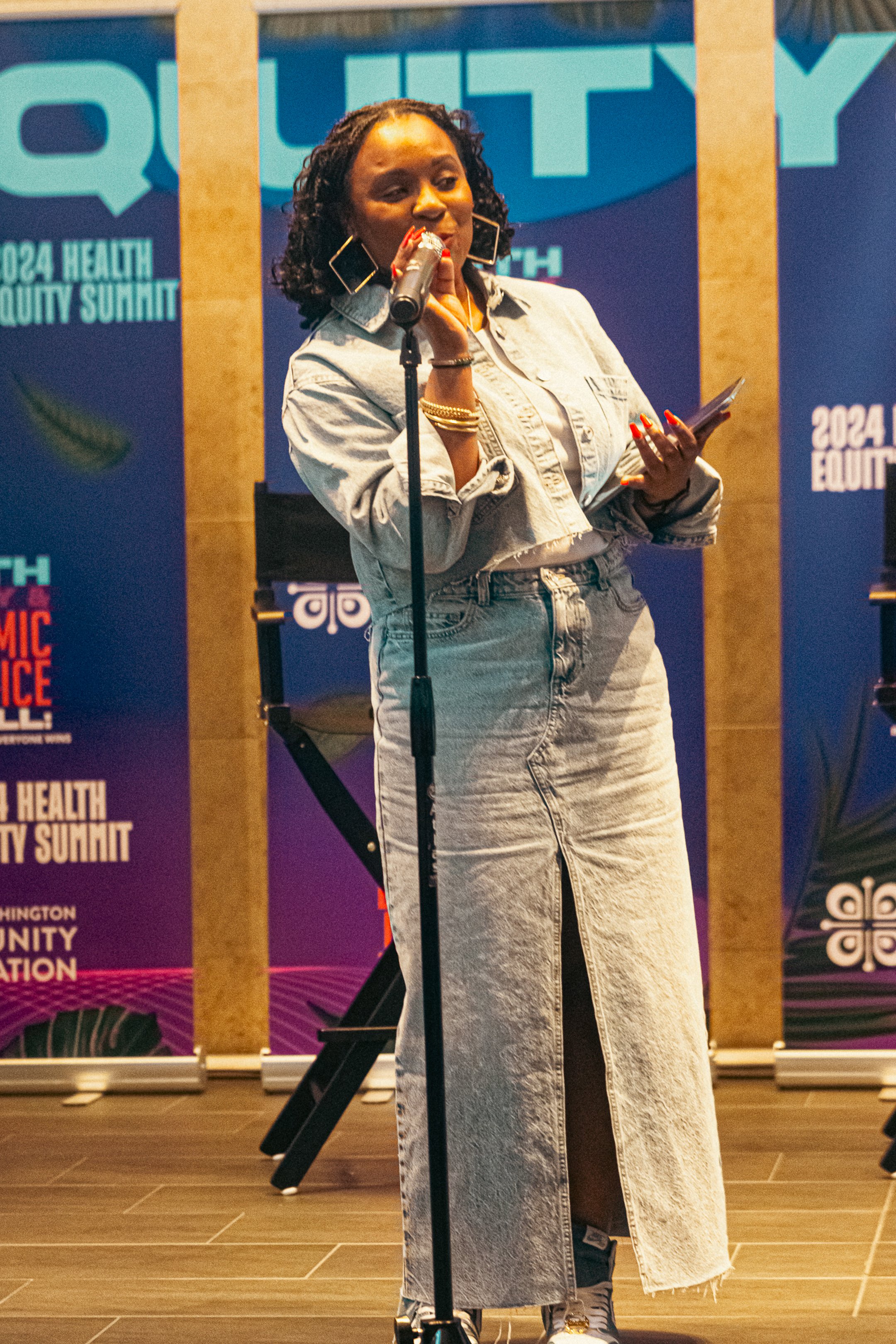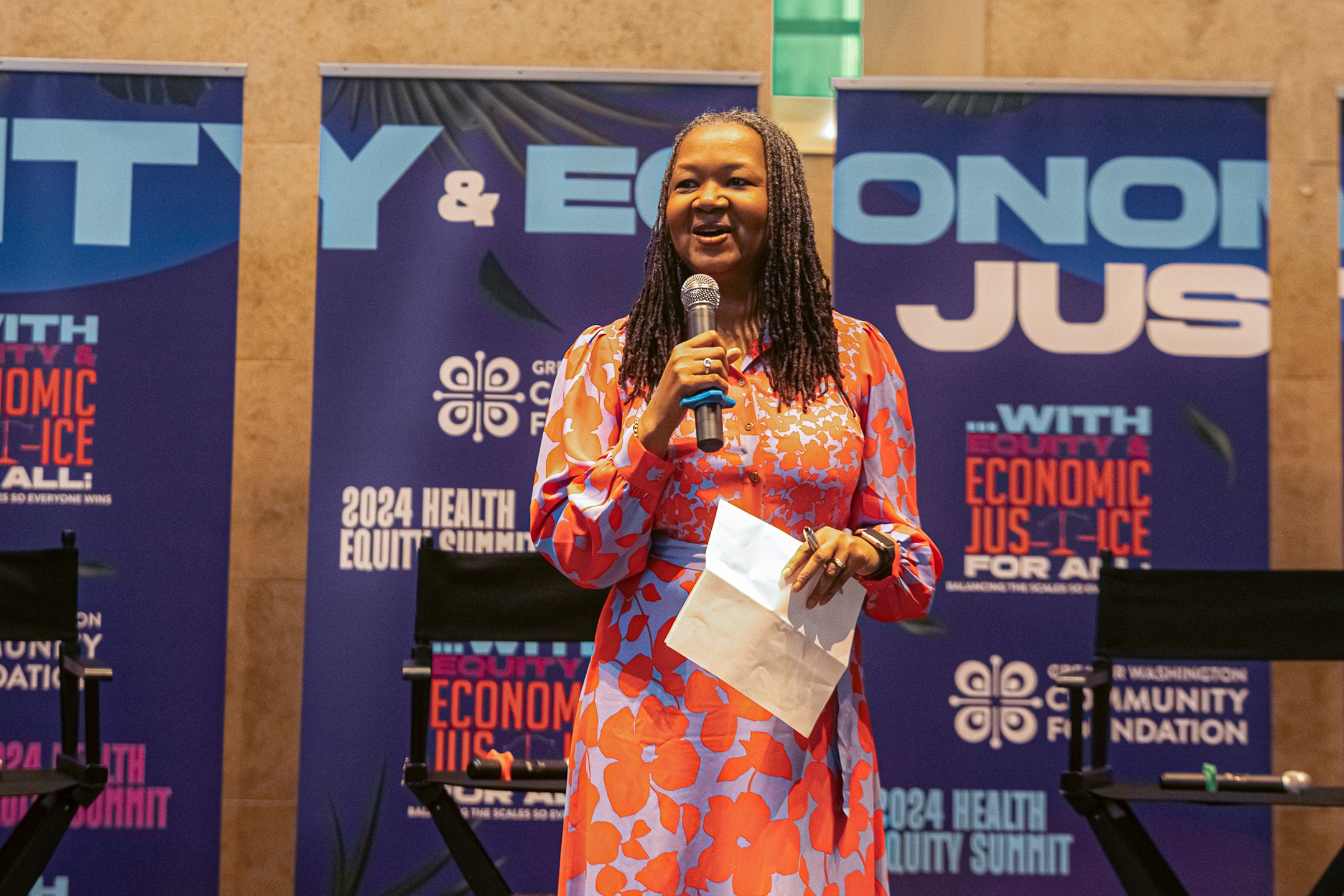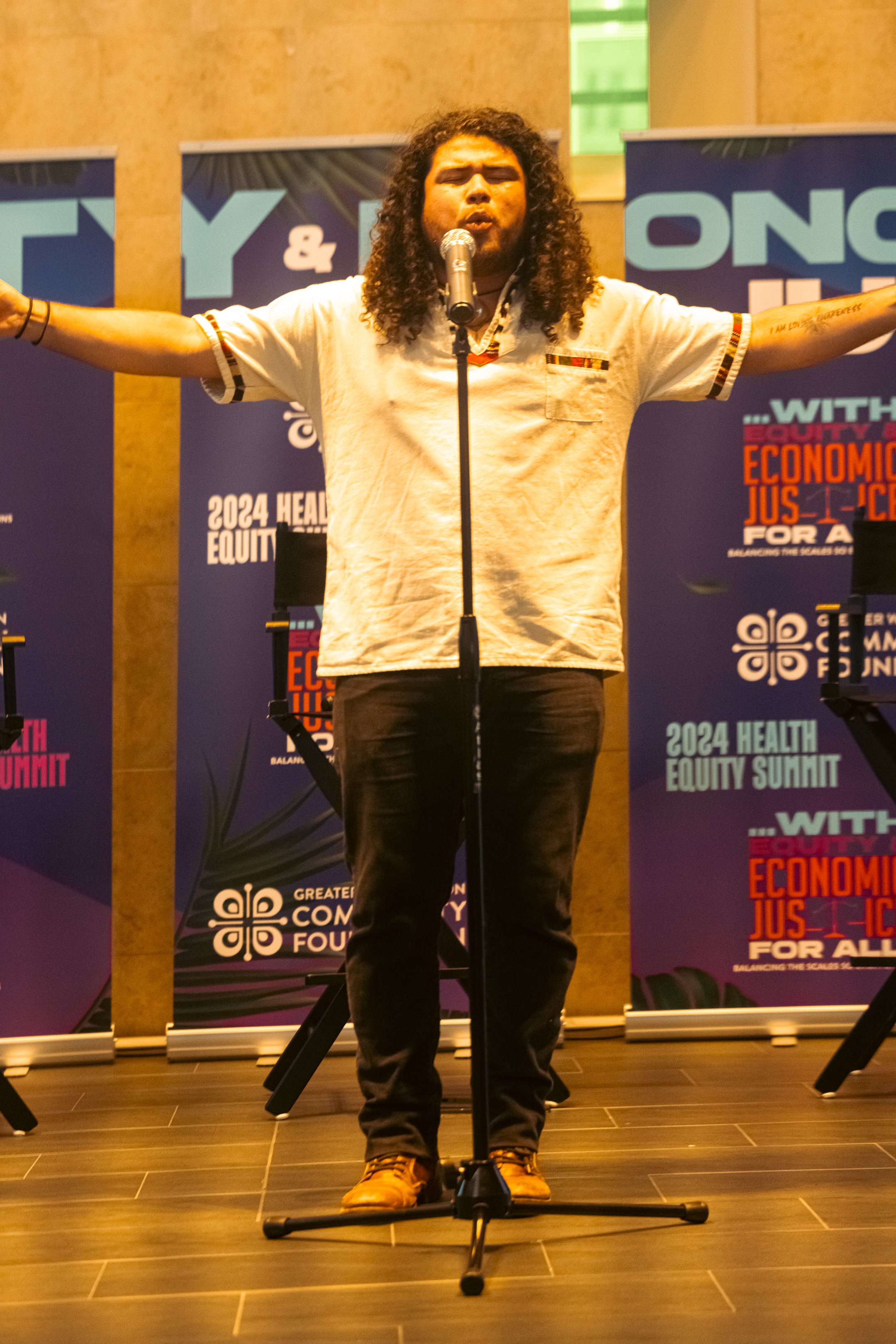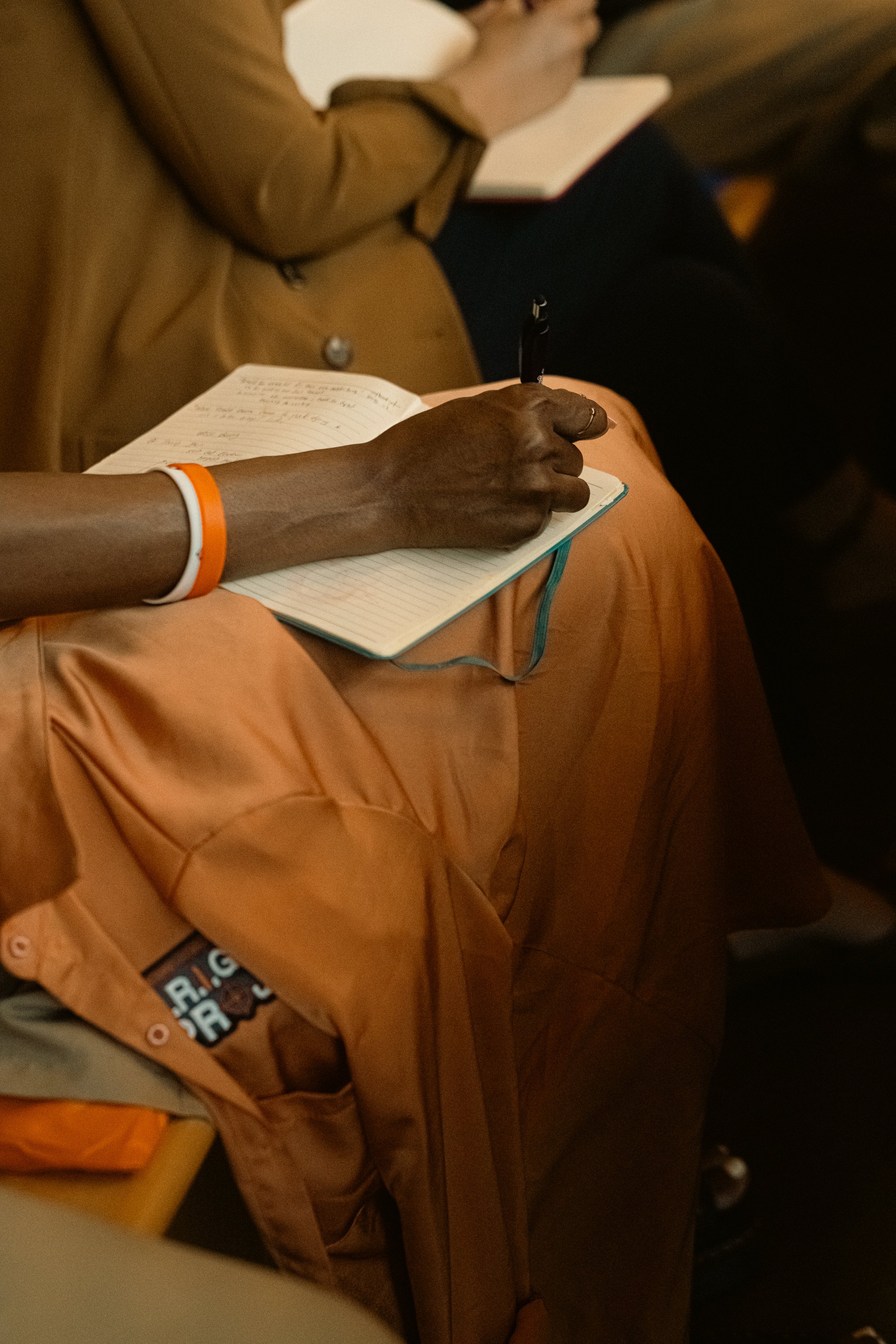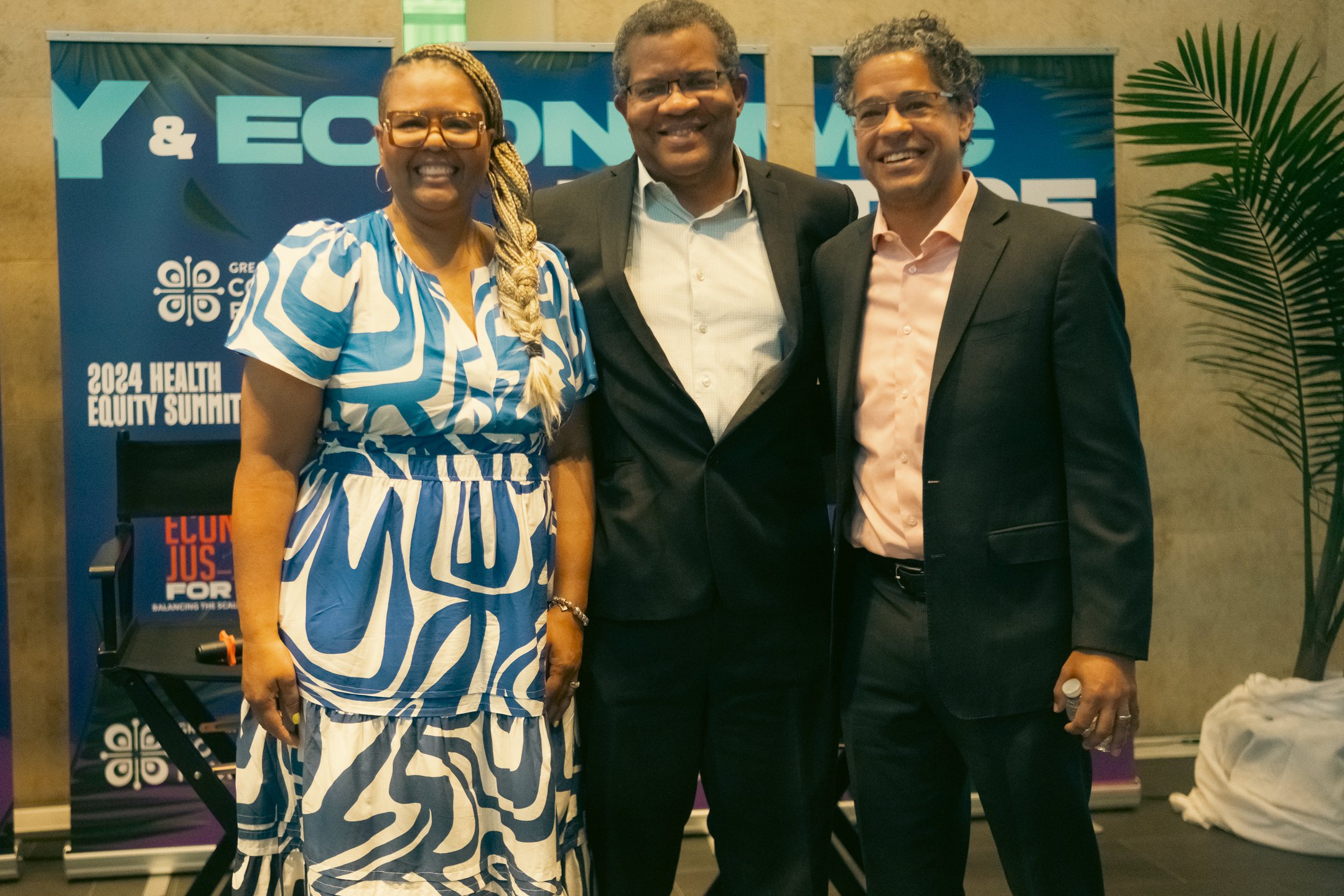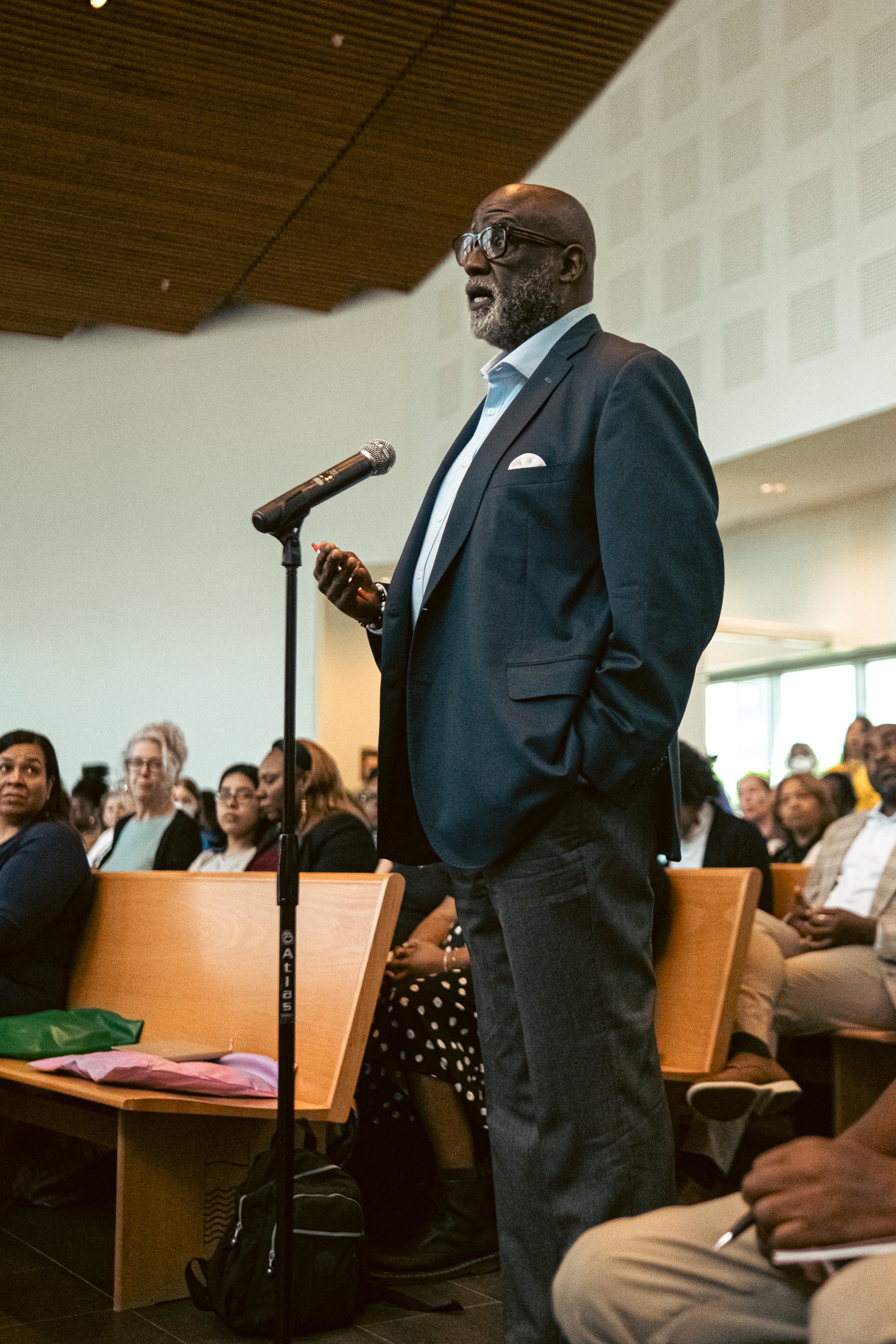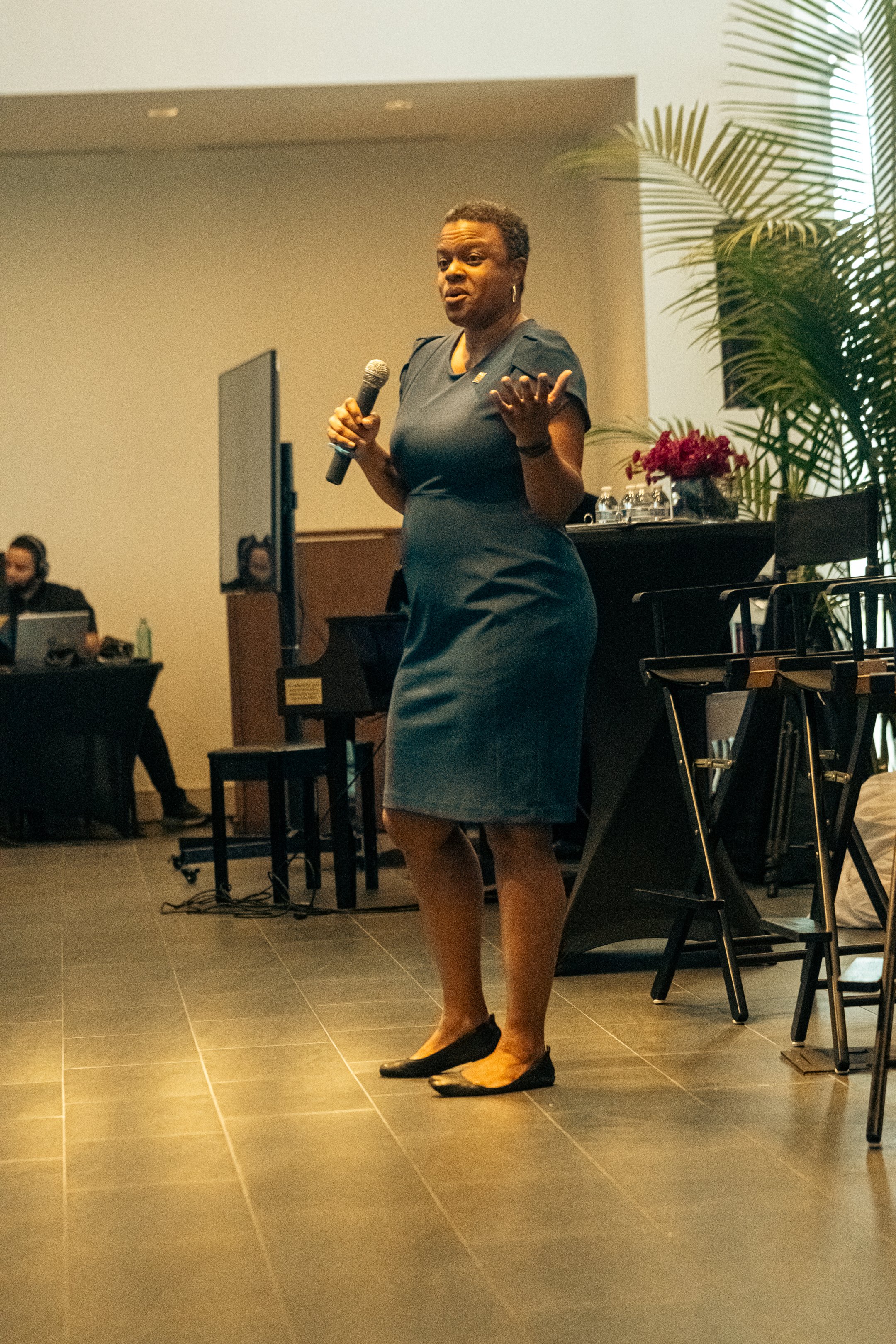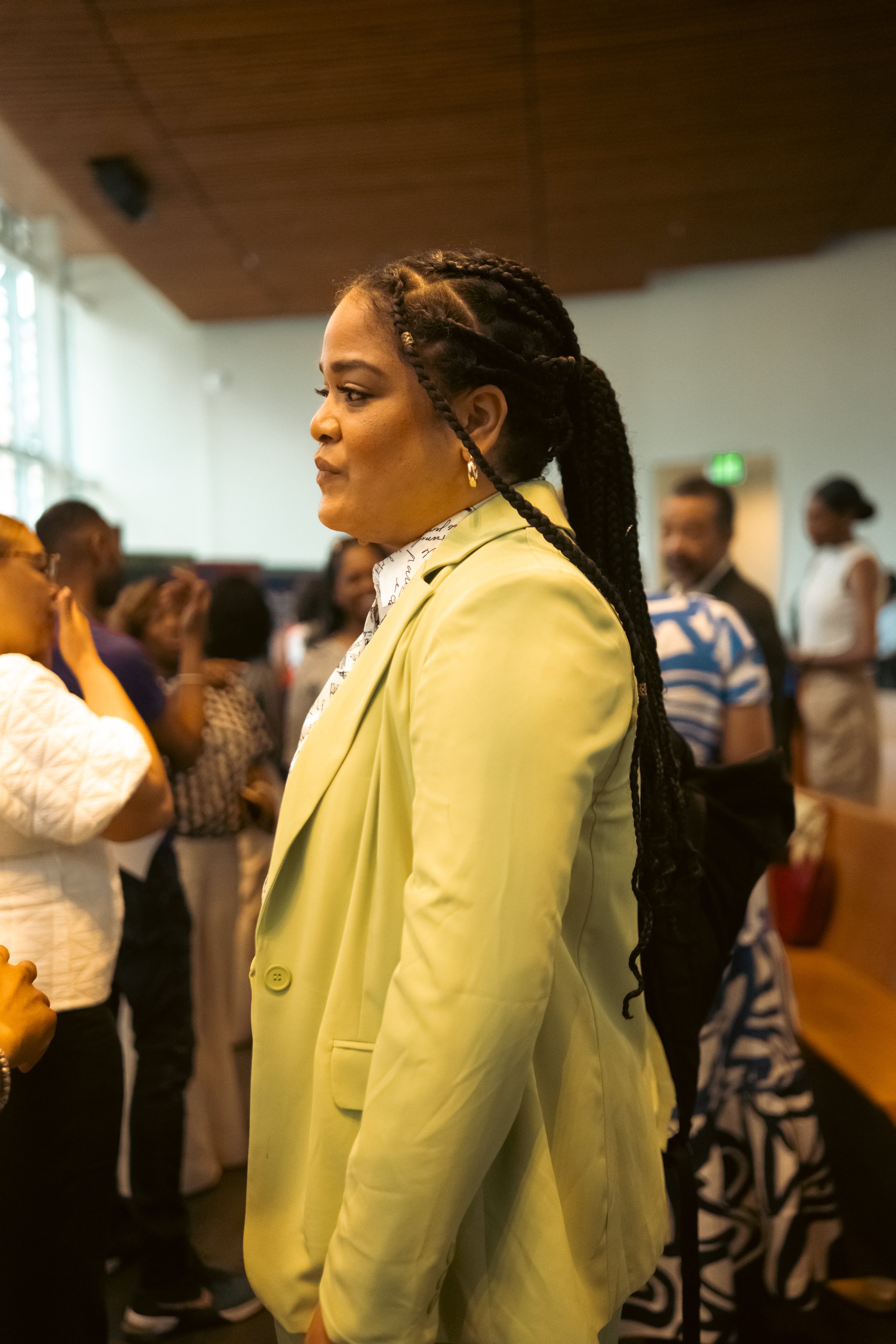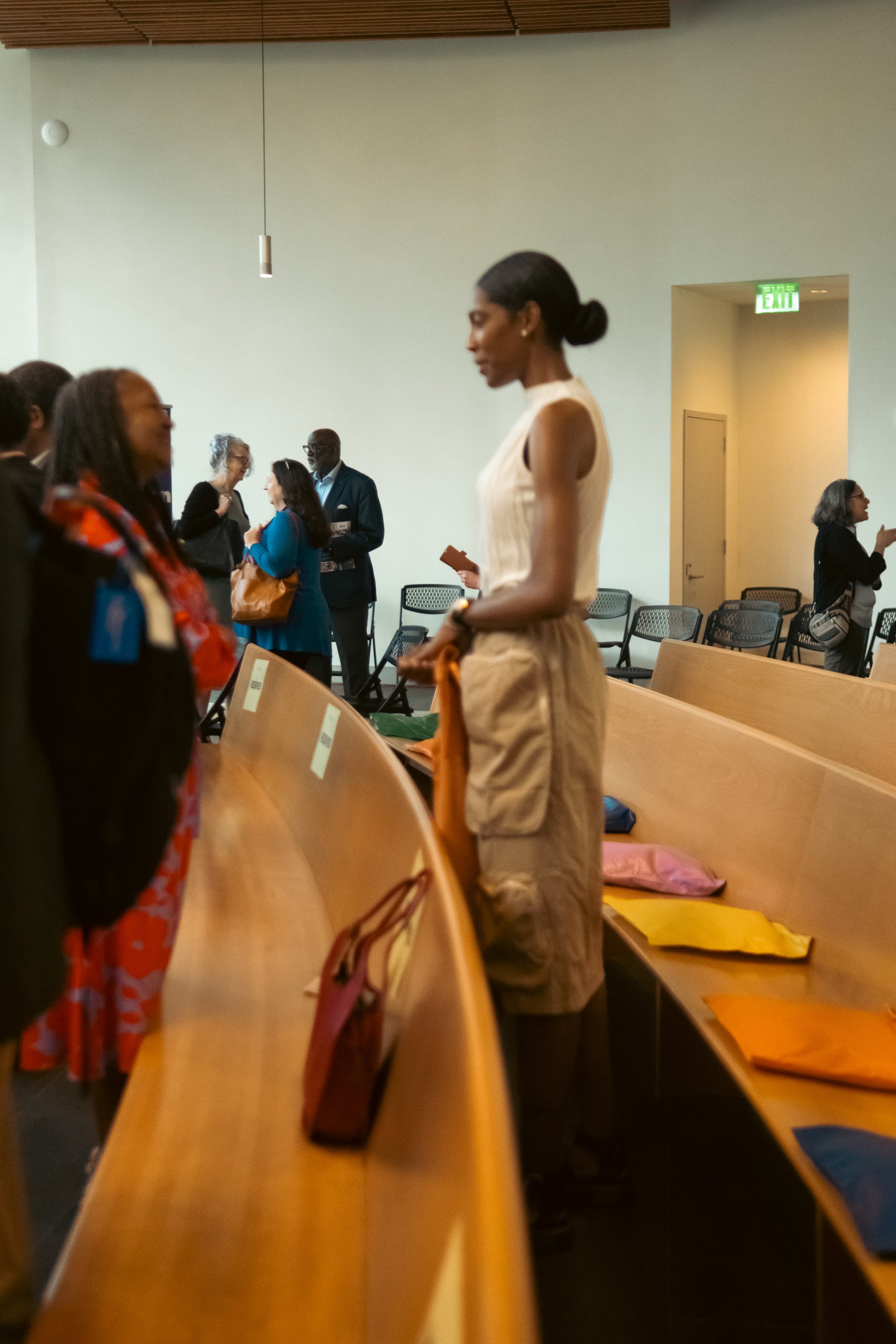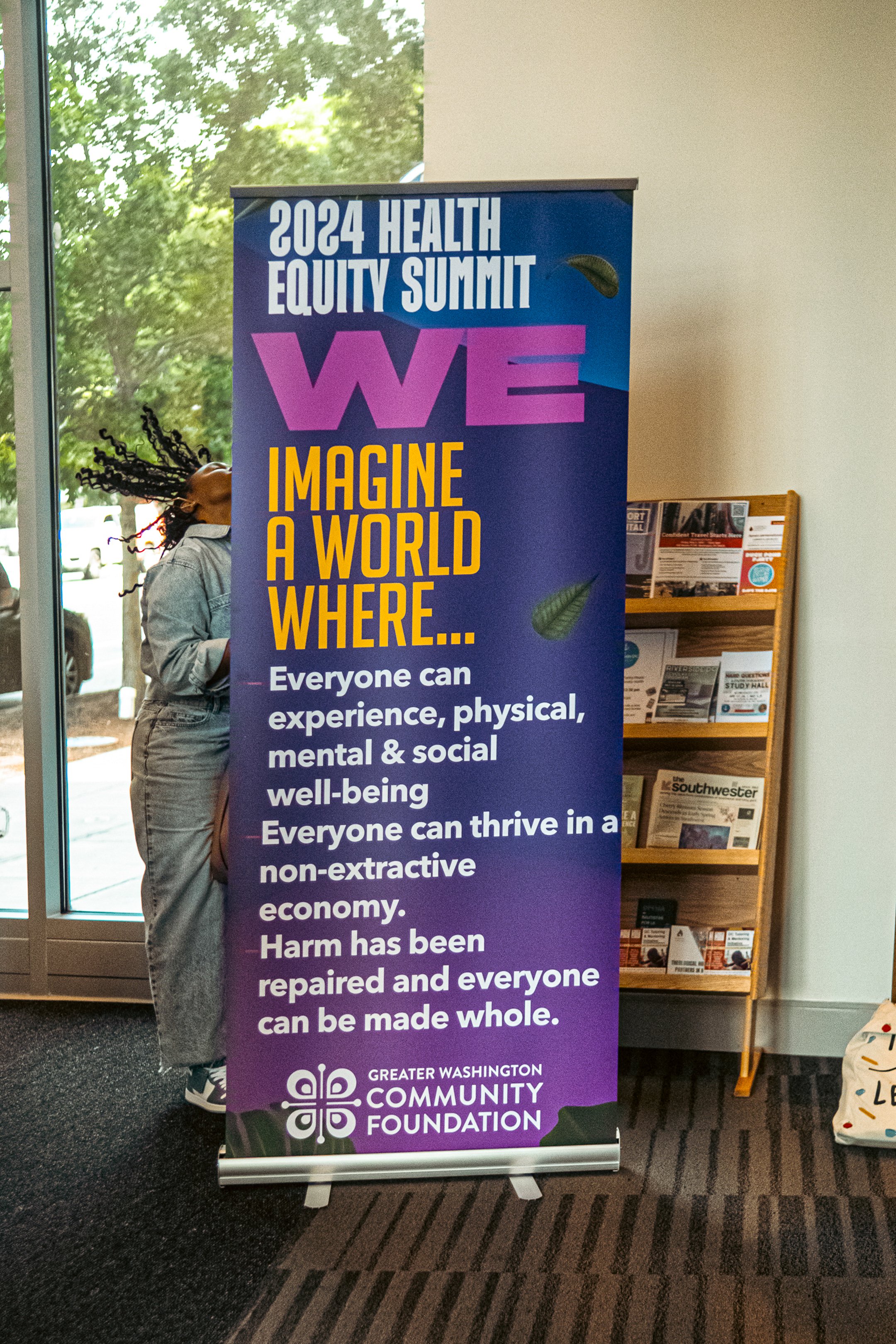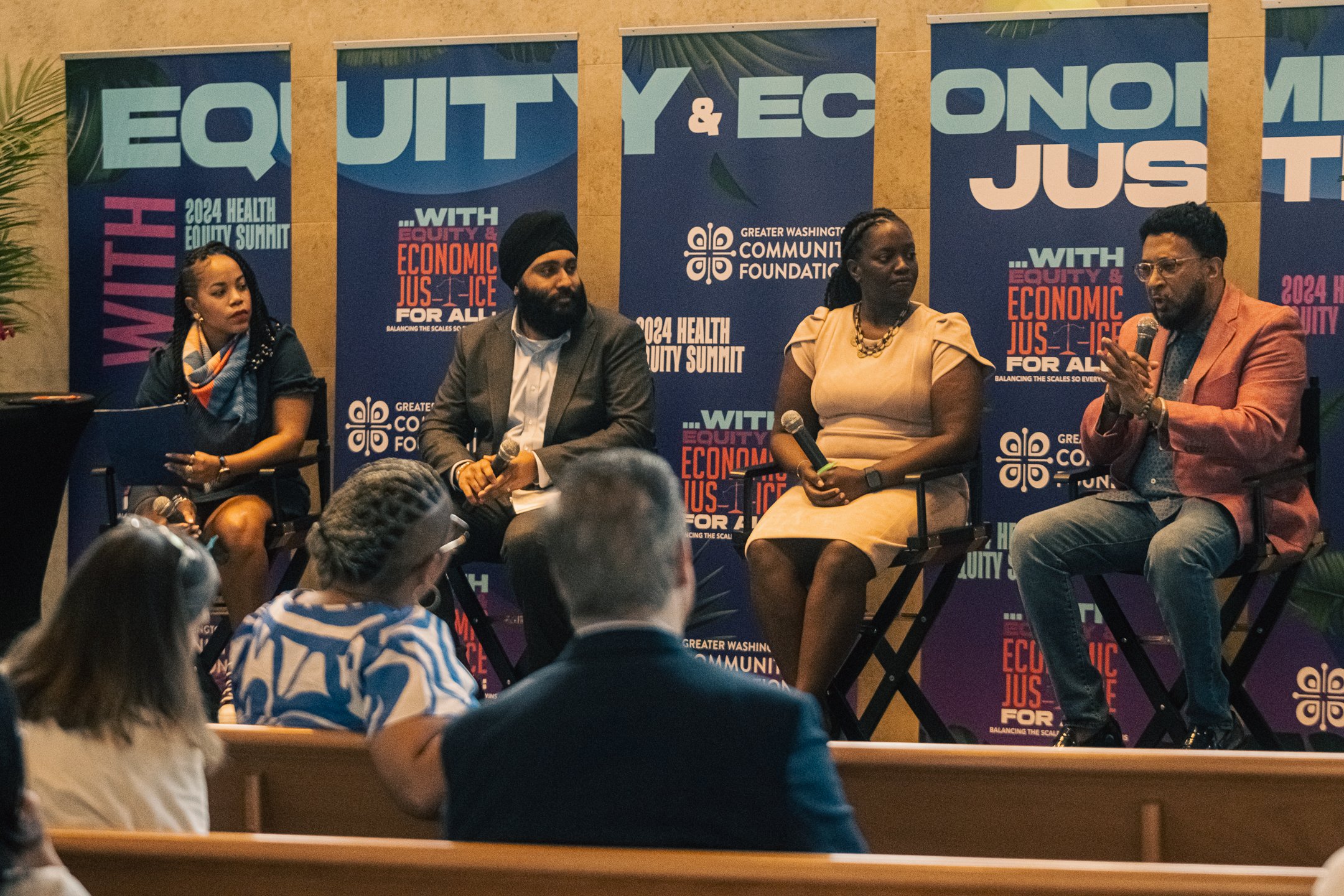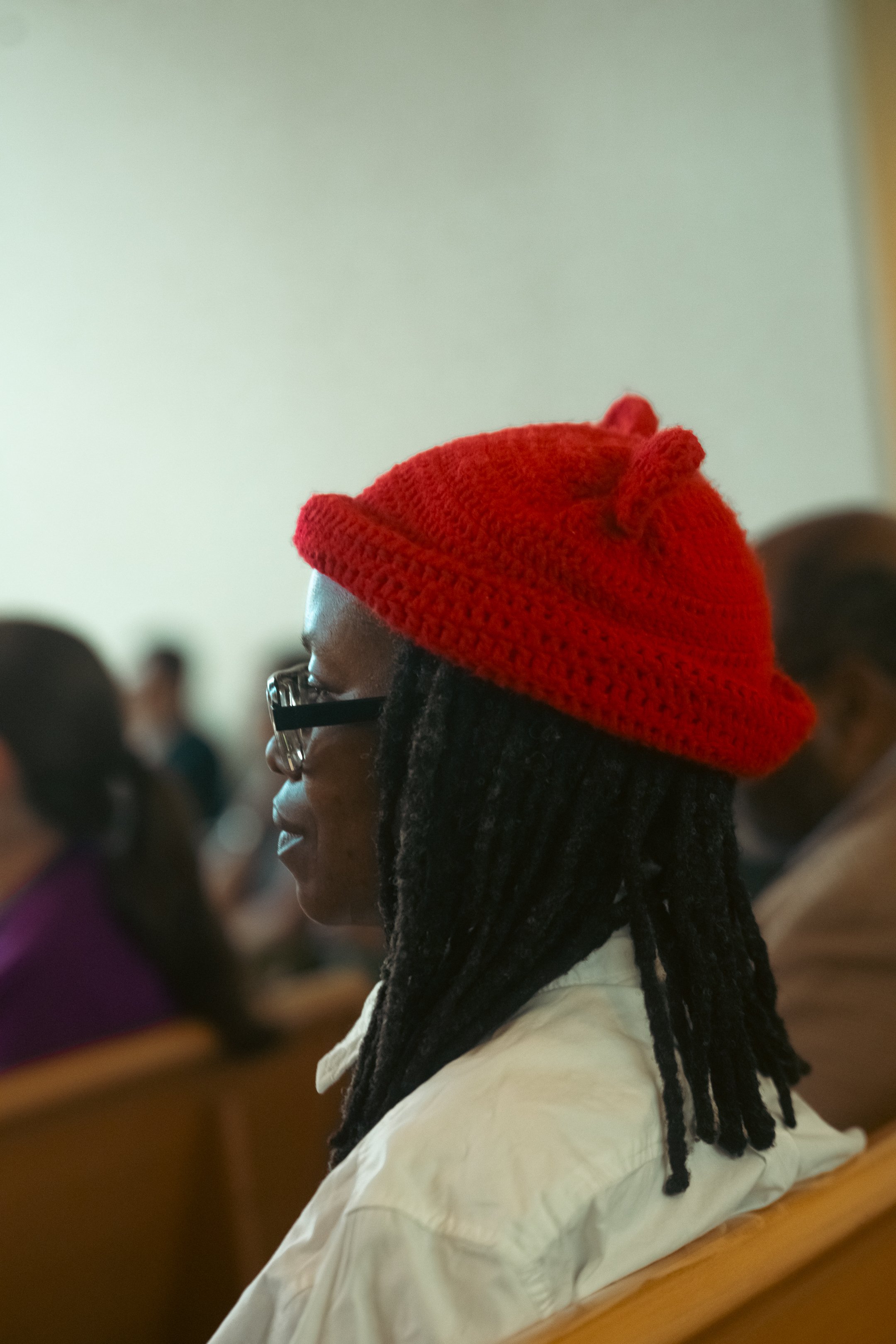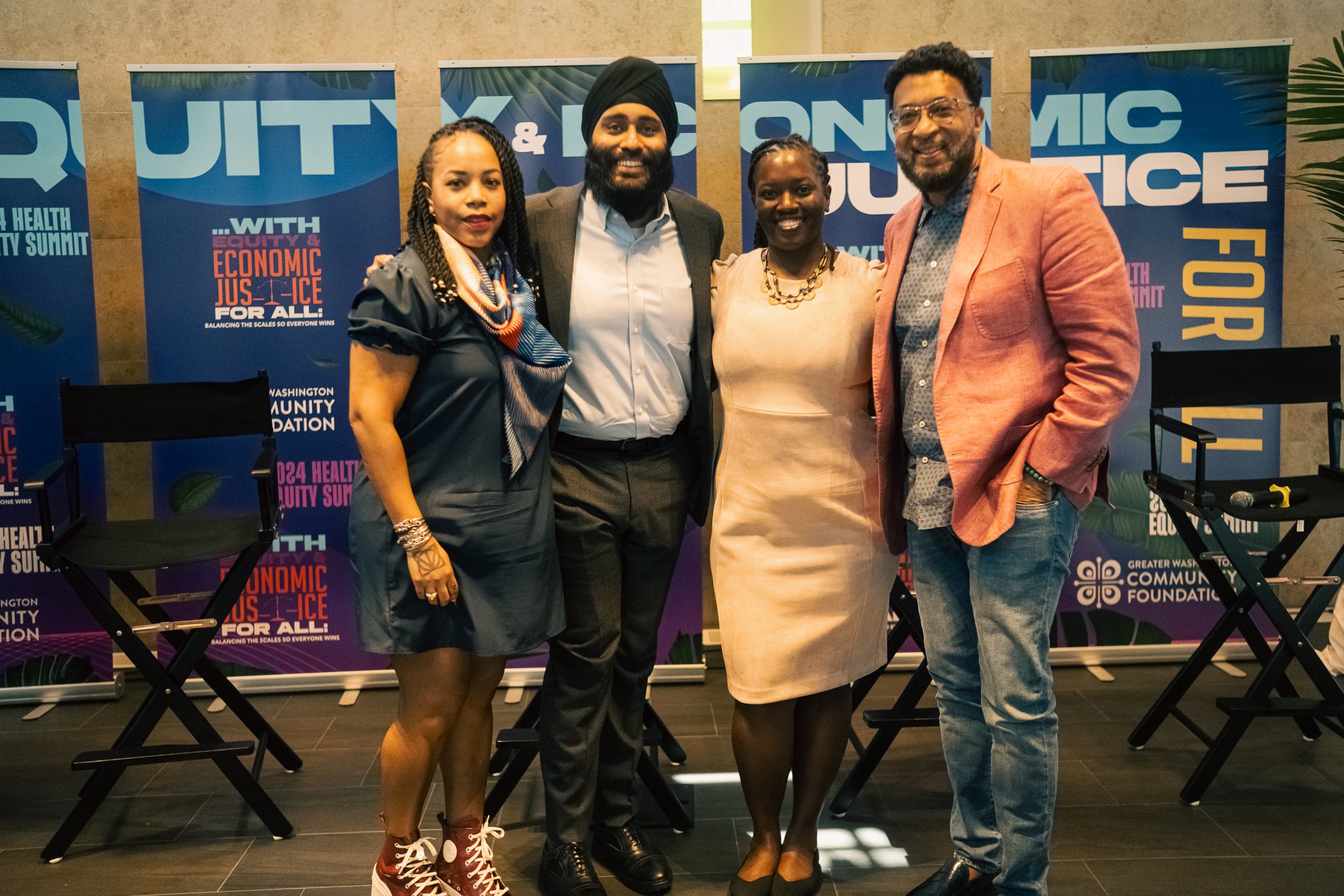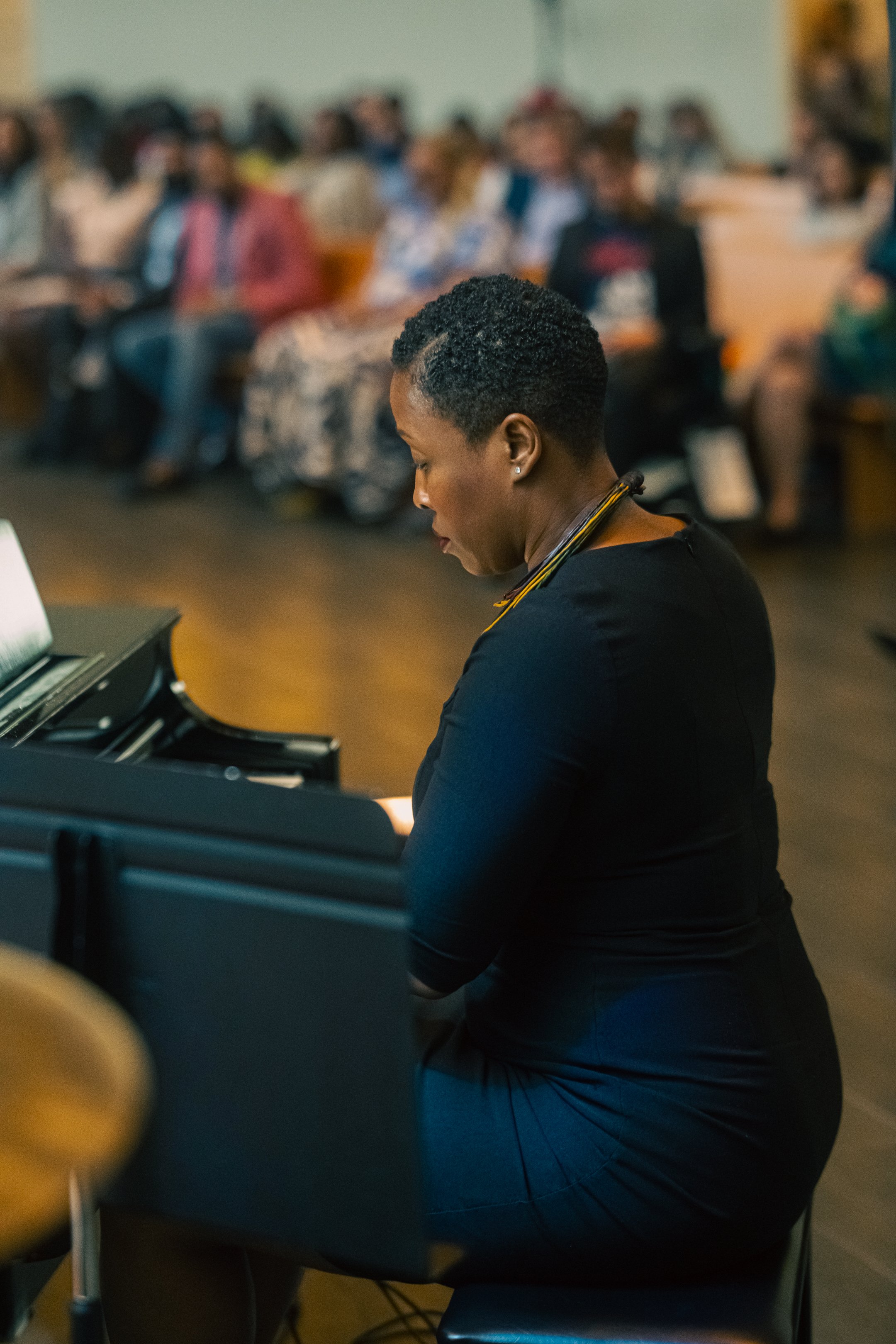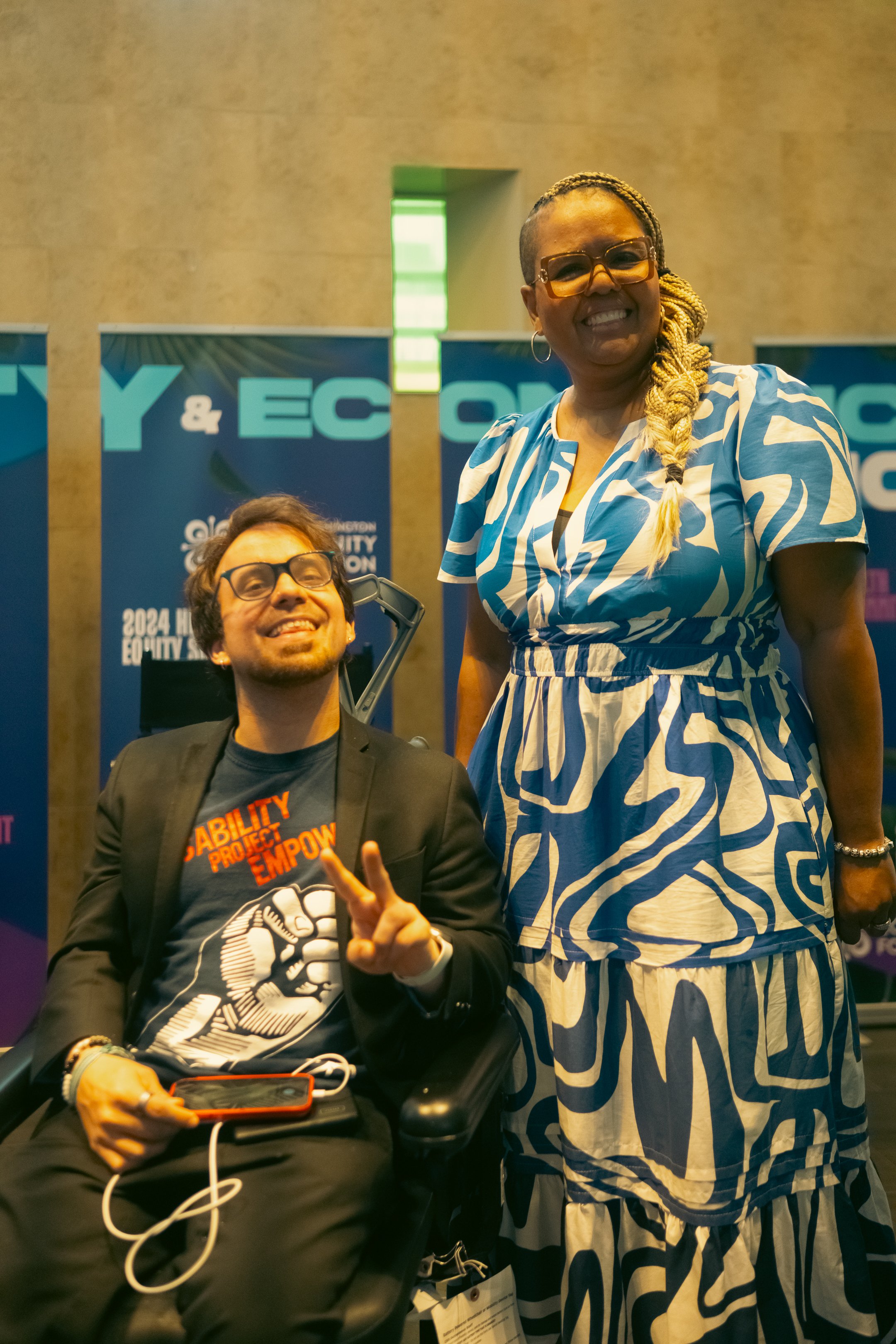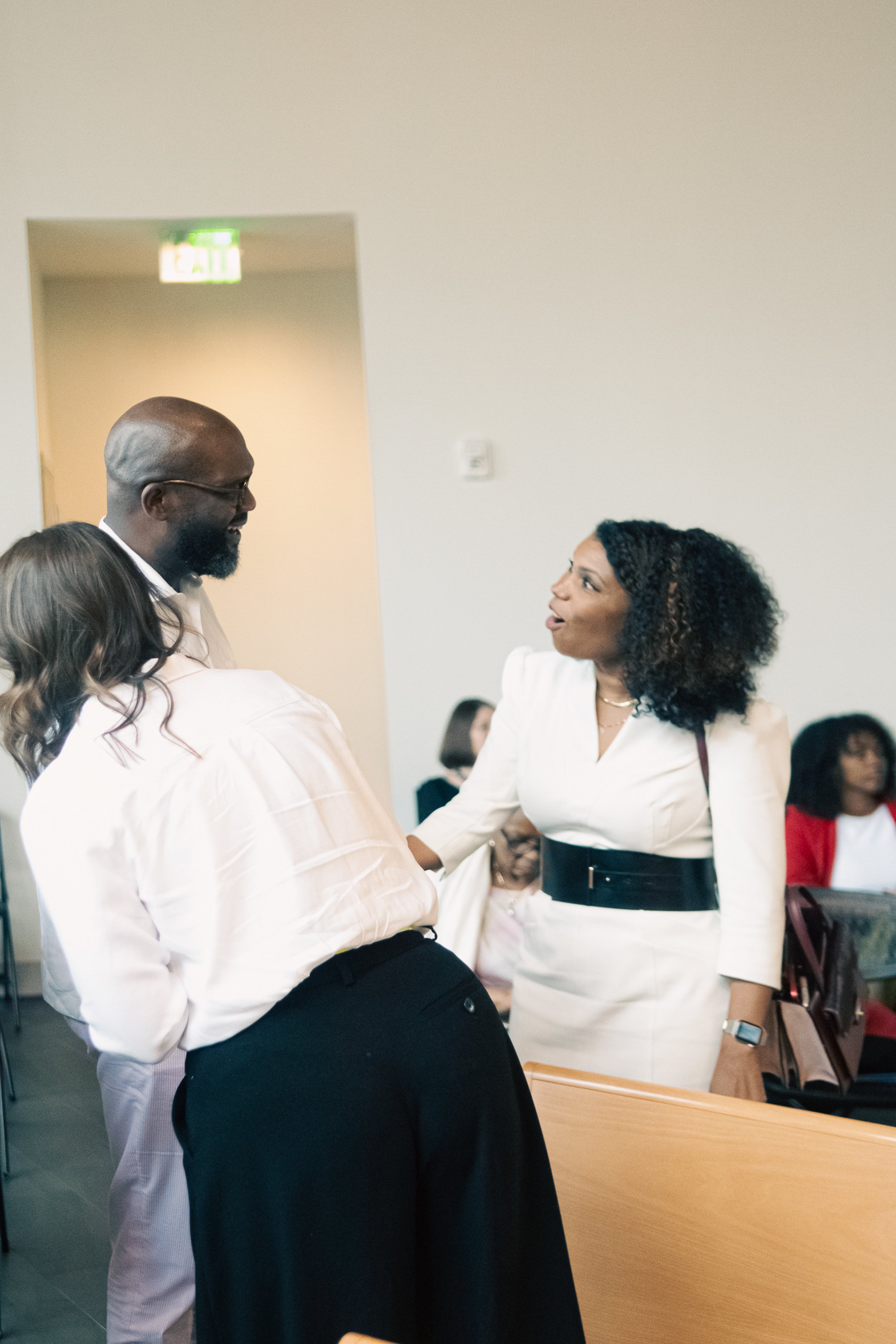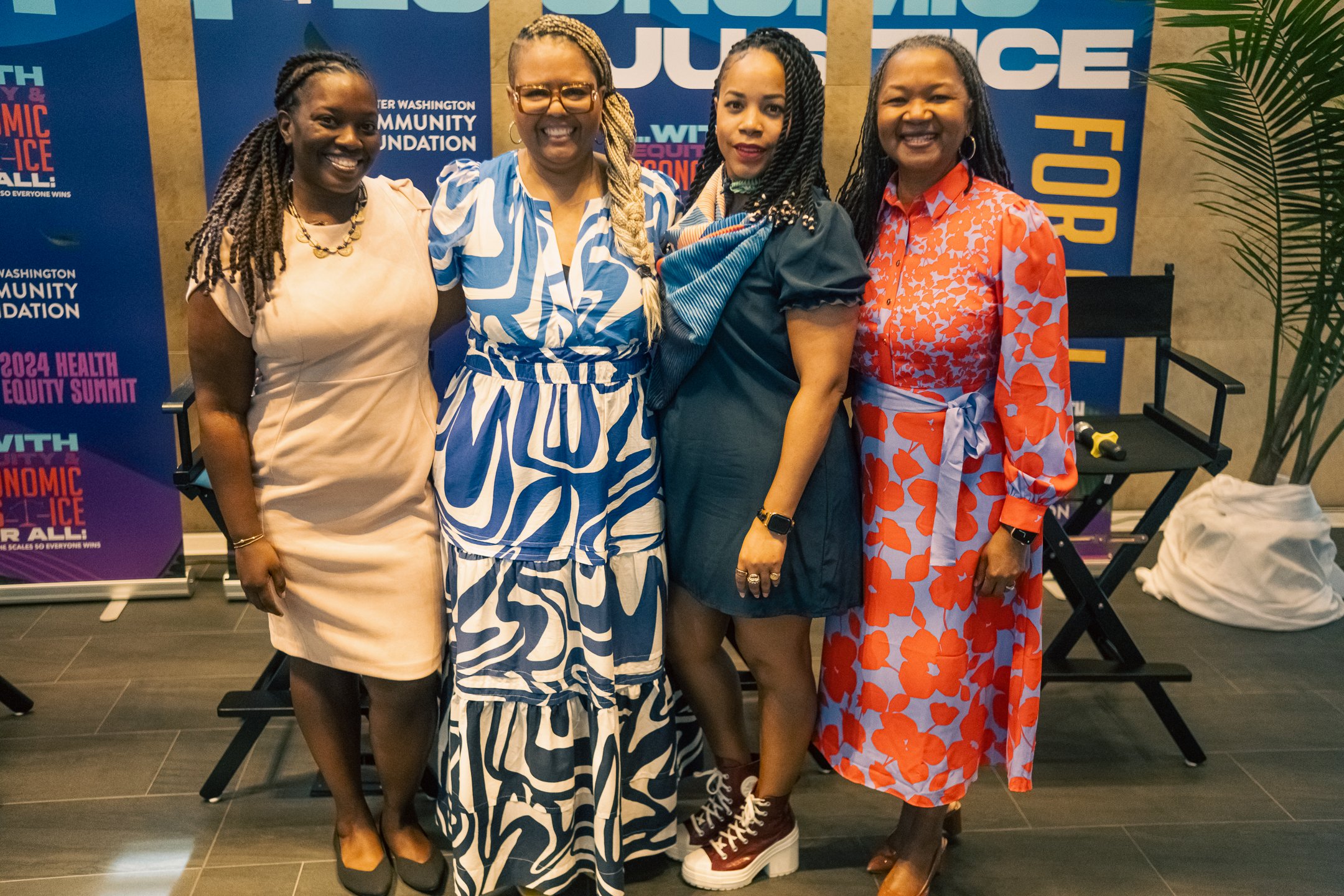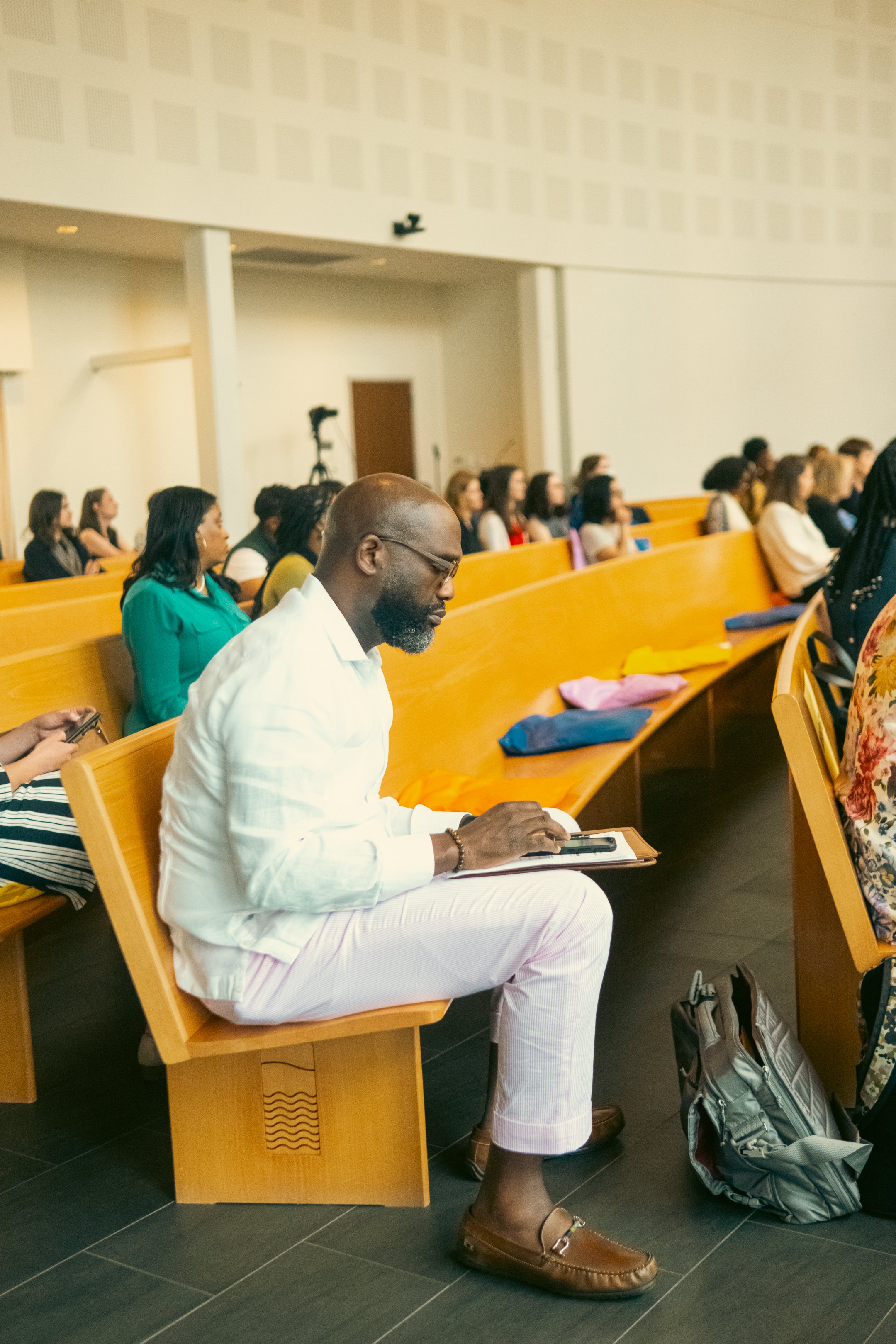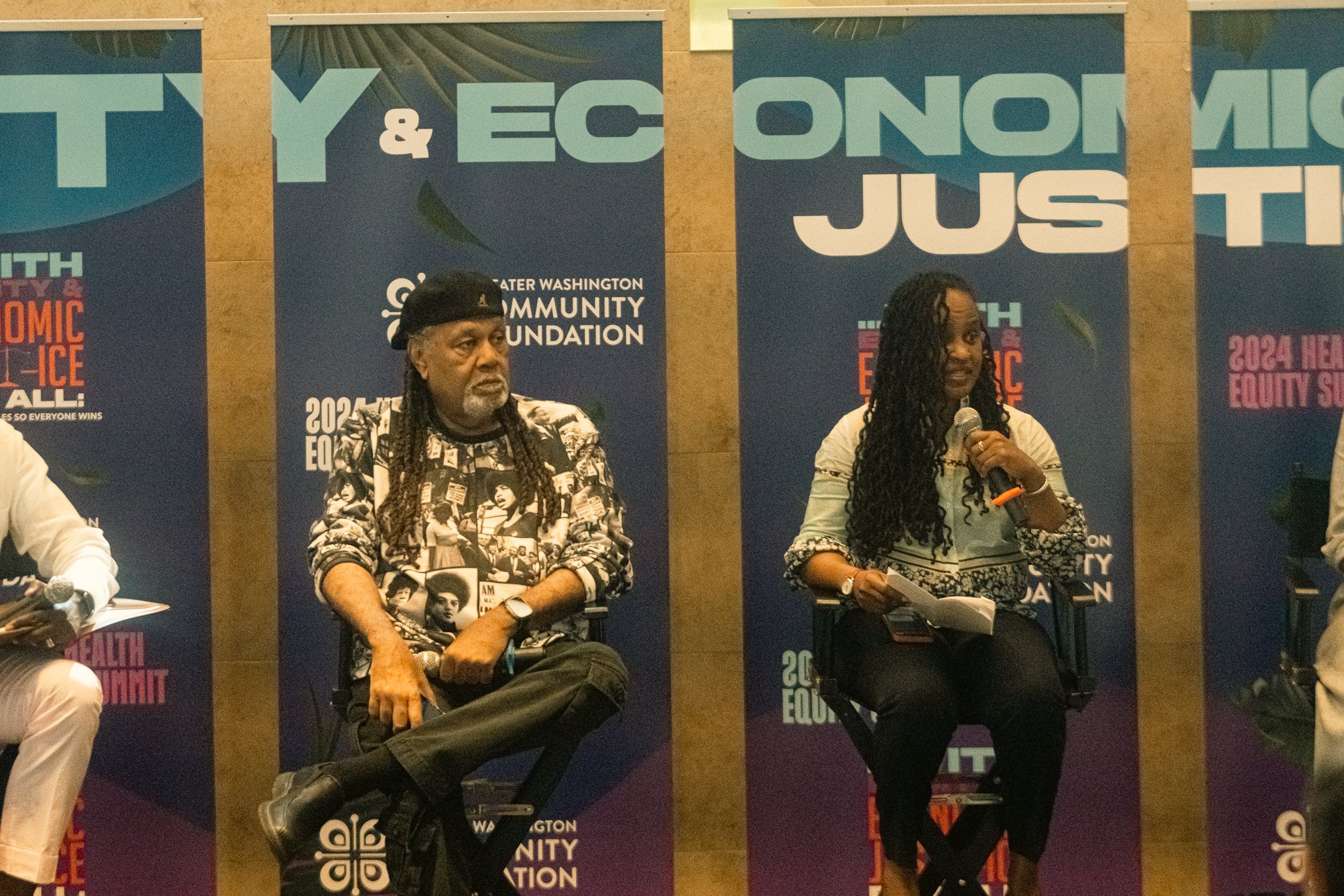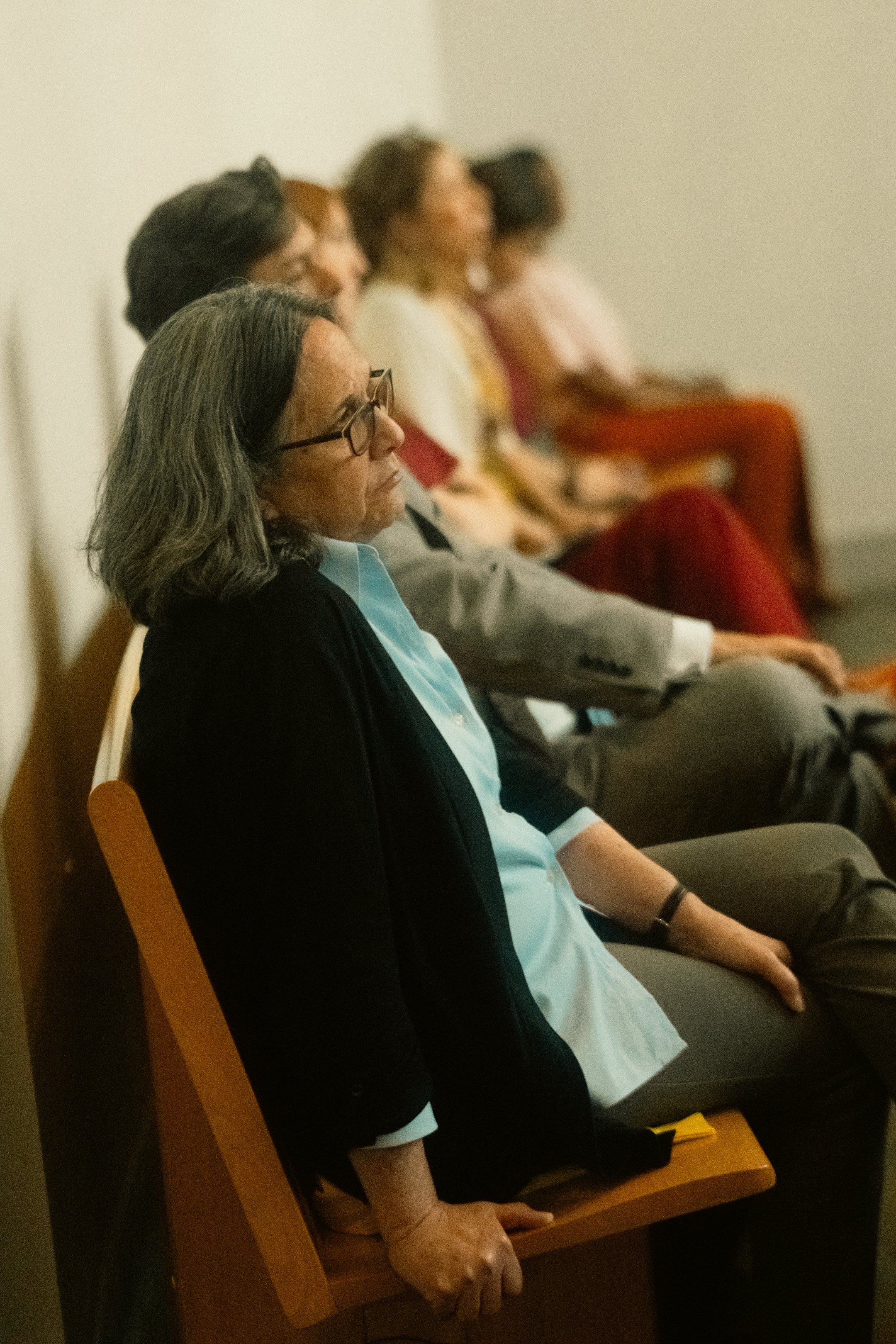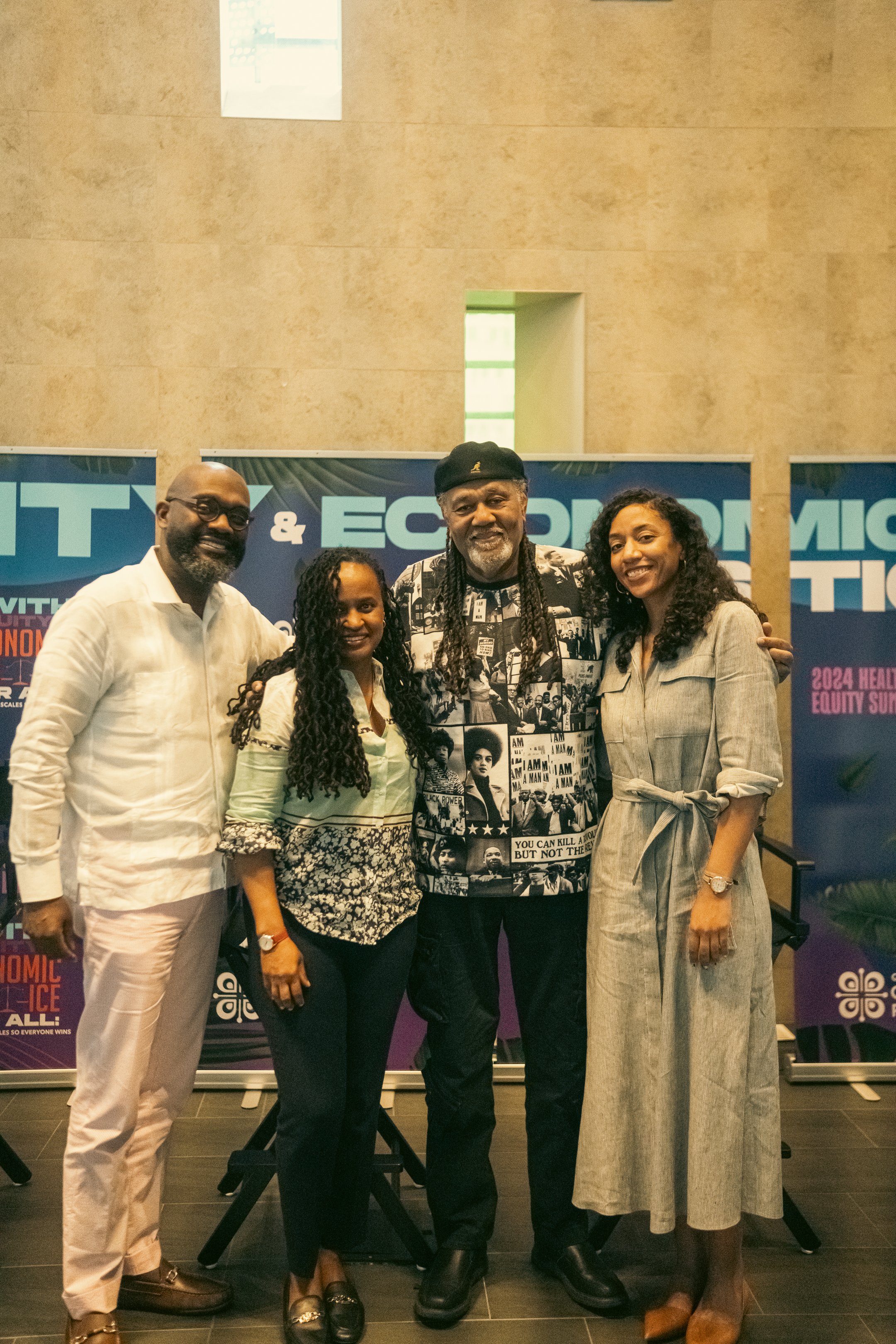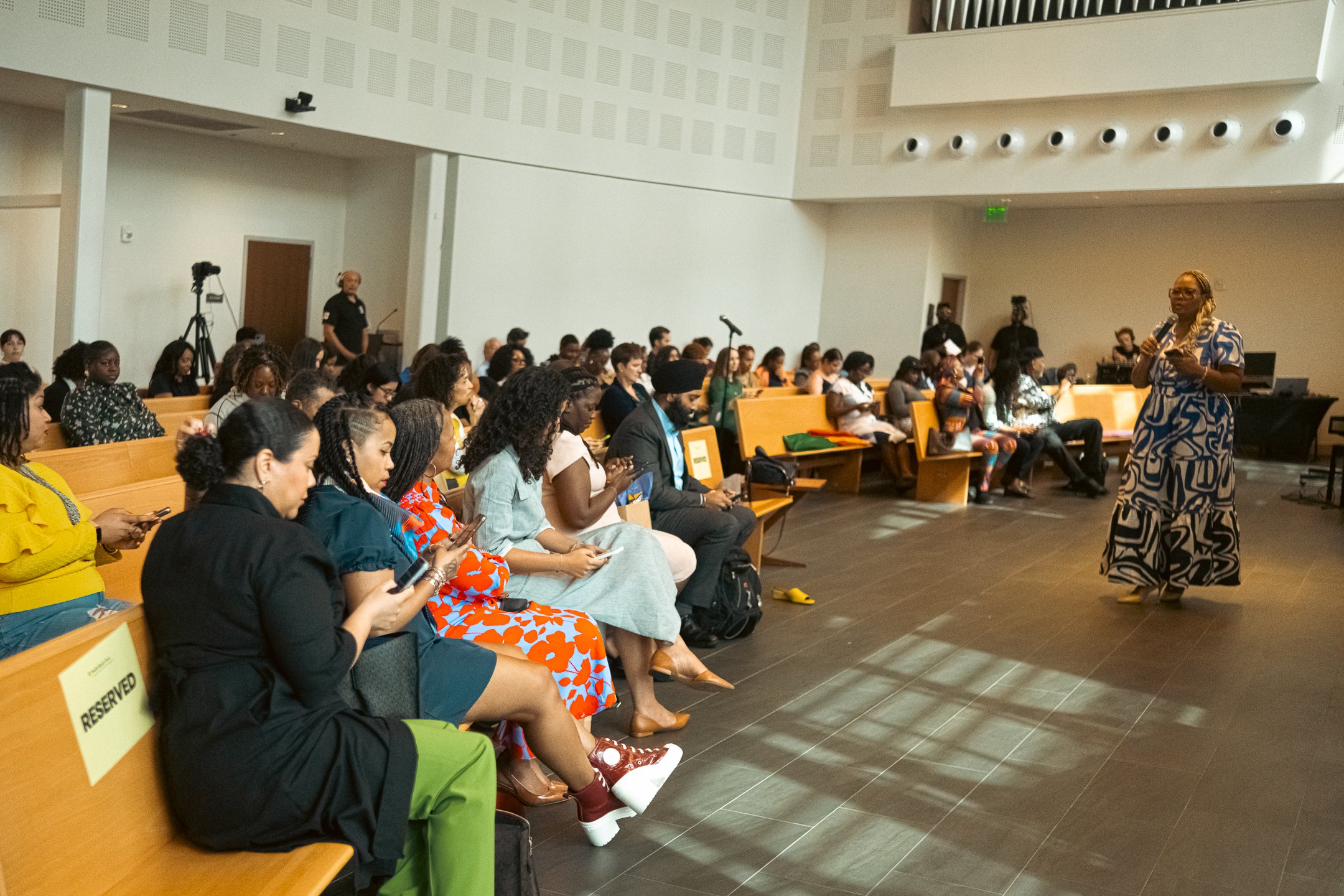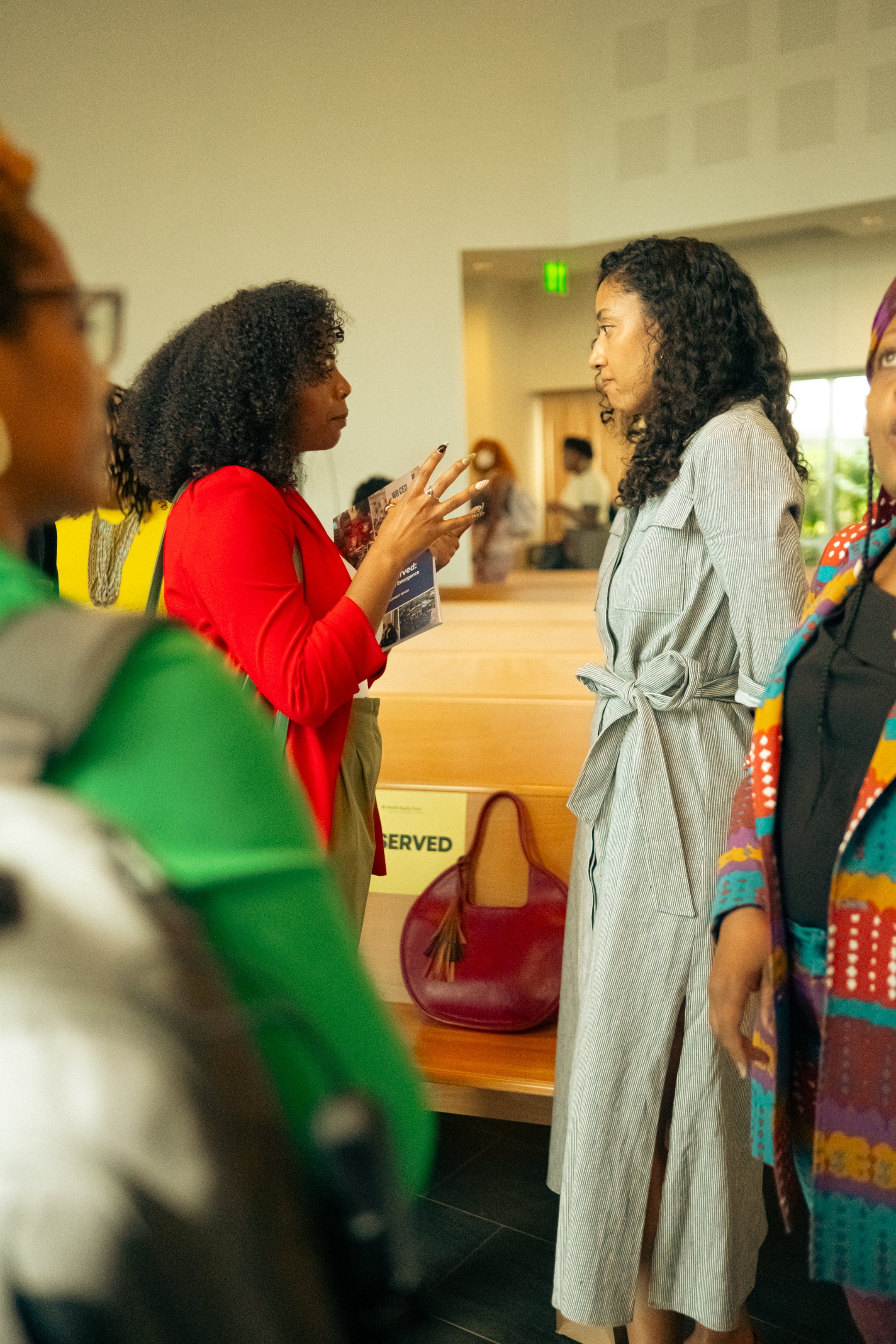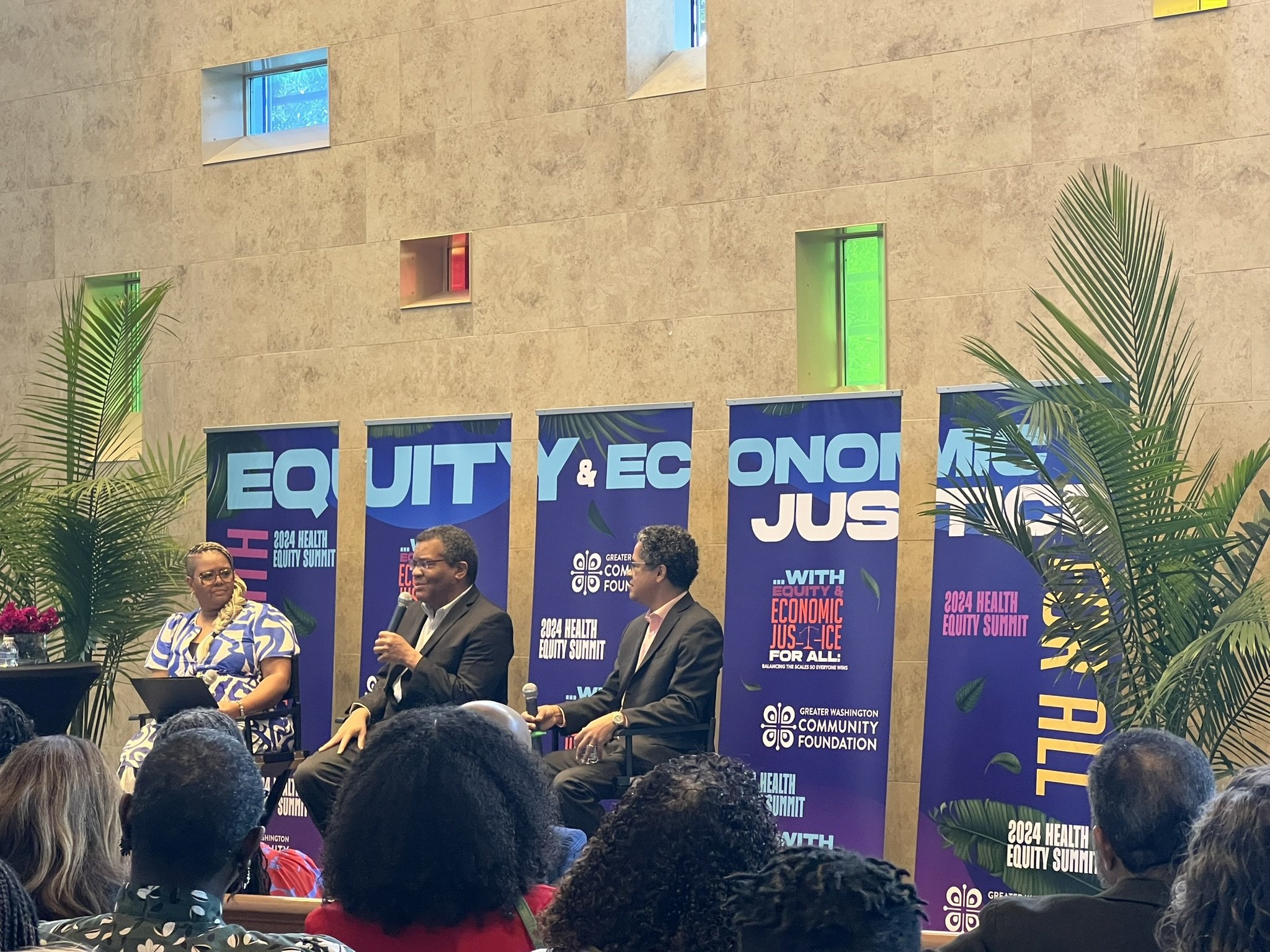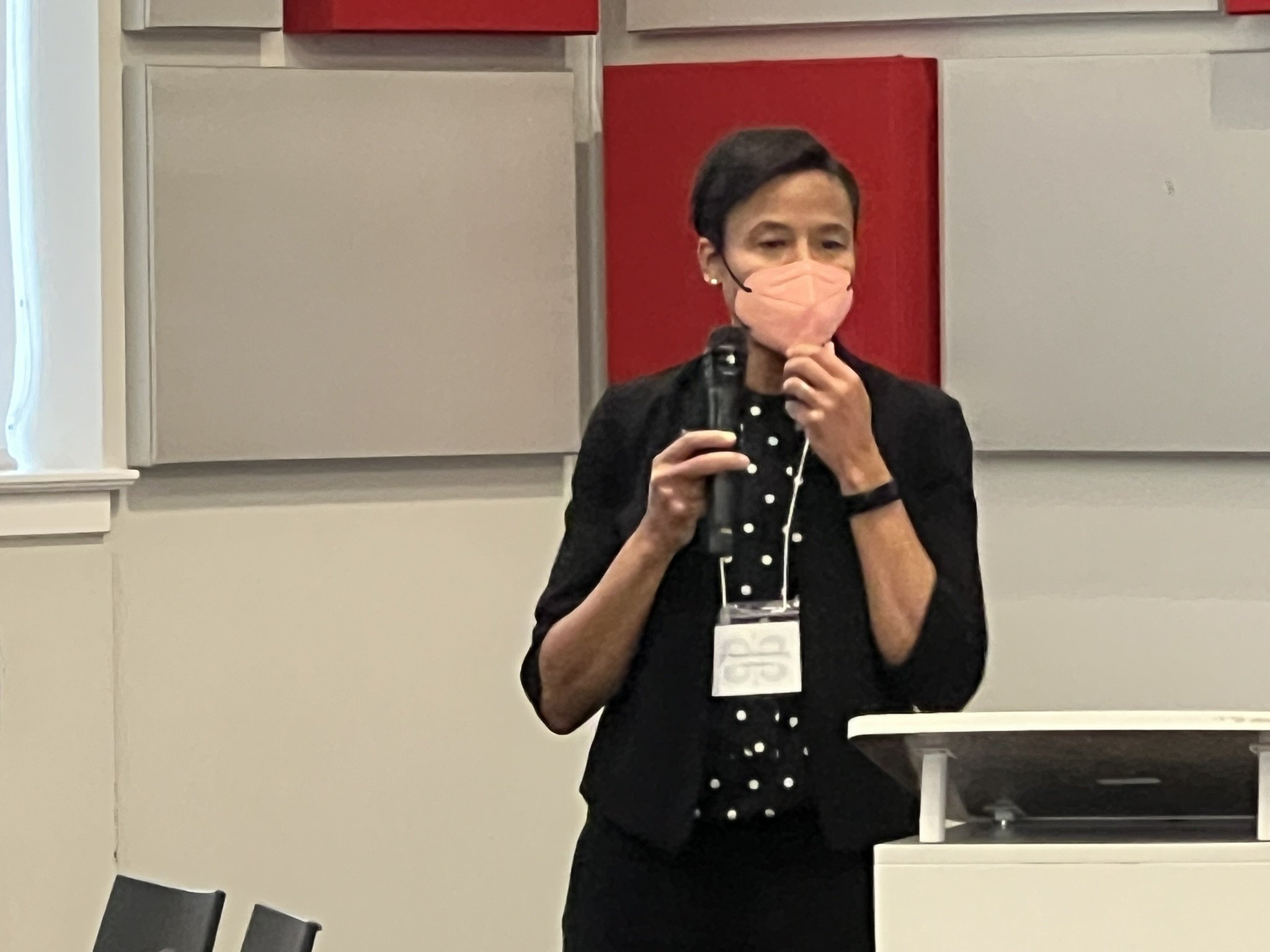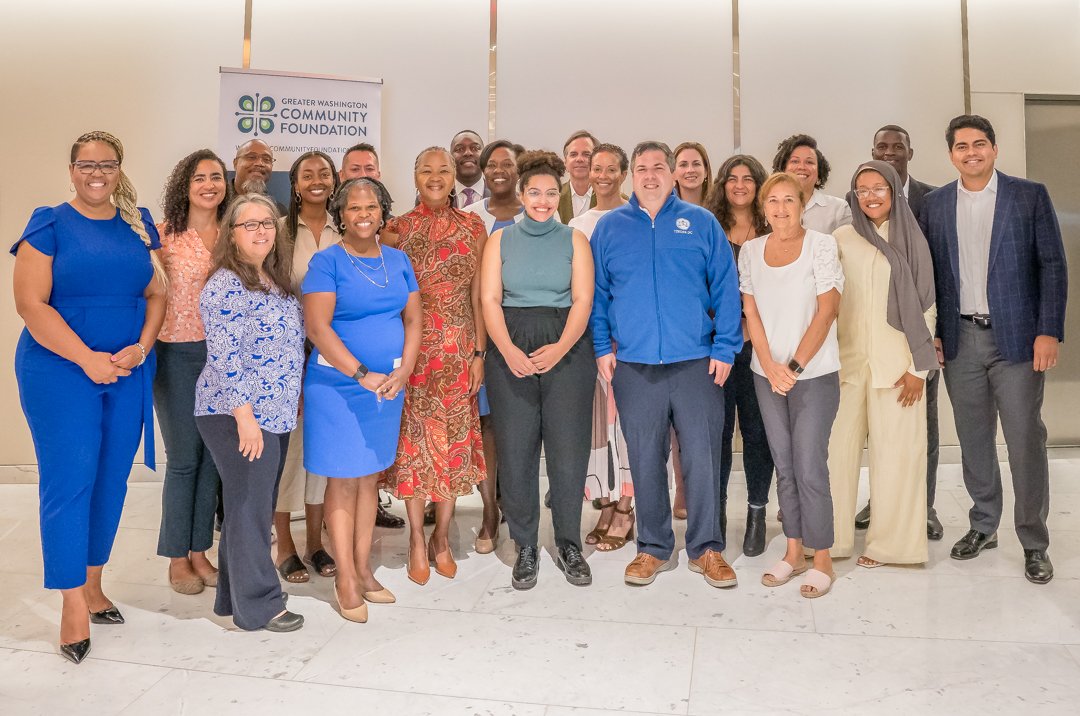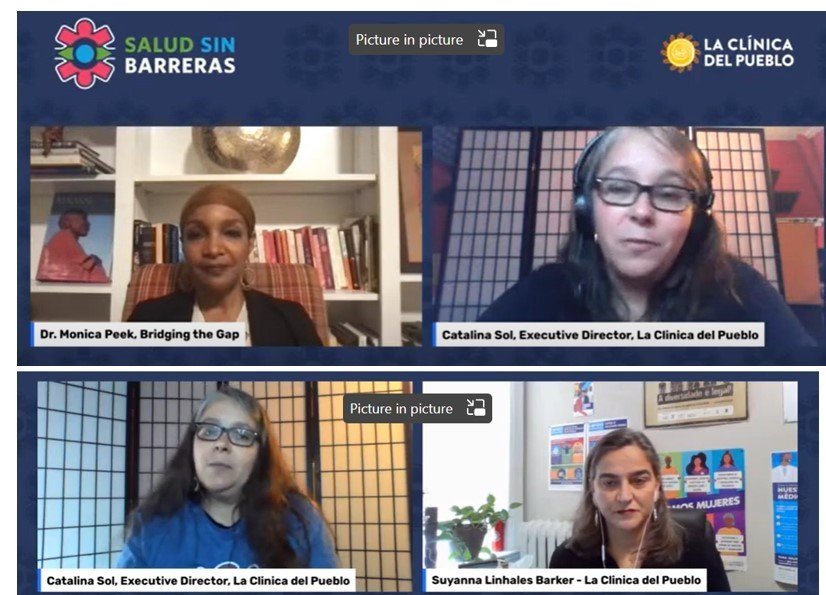In honor of International Women’s Day, The Community Foundation is proud to highlight incredible female leaders in our community who accelerate action by inspiring increased momentum and urgency in addressing systemic barriers.
This month, we’re pleased to feature Gabby Mulnick Majewski, Executive Director of DC Affordable Law Firm. The Community Foundation is proud to partner with DC Affordable Law Firm through our Health Equity Fund.
From the time she was nine years old, Gabby Mulnick Majewski knew that one day she was going to be lawyer.
What she didn’t know was how many people she would help along her journey – especially those who wouldn’t otherwise have access to one.
“At least one in five Washingtonians fall into the ‘forgotten middle’ when it comes to civil legal services,” Majewski explained. “These are people who earn too much to qualify for traditional forms of free legal aid but are unable to afford private counsel – and often end up representing themselves in court.”
“When you are at risk of losing custody of your child, being deported, or losing an intergenerational family home – having access to a lawyer can be literally life-changing.”
Majewski with her mother, a lifelong social worker who inspired Majewski to pursue a career in Public Interest Law.
Building Relationships Through Public Interest Law
Majewski’s passion for the forgotten middle comes in part from personal experience from her childhood, when her parents filed for a divorce. During the months that followed, Majewski watched as her mother – a lifelong social worker and, at the time of their separation, a stay-at-home parent – struggled to navigate the complex legal system with limited resources at her disposal.
Majewski – who was just starting to learn about the legal system as part of her fourth-grade curriculum – decided she wanted to work with children and families to make a difference and amplify their voices within the legal system.
She went on to graduate from American University Washington College of Law and found her way to the Children’s Law Center (CLC) – a public interest firm serving families in DC.
“There’s nothing more fundamental than families and the relationships between children, their siblings and their parents,” Majewski reflected. “It was a humbling experience to work with families in their most difficult moments to make sure their best interests were represented and that they could get what they needed.”
Majewski with one of her former clients from her time as a GAL.
Majewski spent the bulk of her time at CLC as a Guardian Ad Litem (GAL) – advocating for the best interests of children in DC’s Abuse & Neglect System, and thereafter supervising those cases. Over her eleven years at CLC, Majewski directly represented and supervised the cases of hundreds of children and spent countless hours visiting with families in their homes, engaging in deep and vulnerable conversations about their challenges, dreams and aspirations, and building lifelong friendships with her young clients– some of whom she’s still in regular contact with, more than a decade later. Her day-to-day interactions gave her a first-hand view of the real-life challenges facing children and their families.
“Families often come under the scrutiny of the child welfare system because of collateral issues related to poverty – whether it’s a lack of stable employment or affordable childcare,” Majewski shared. “Oftentimes the parents involved are not bad actors so much as products of an environment where they are simply fighting to survive.”
Learning to Lead During a Global Pandemic
In 2019, Majewski learned about an opportunity that would allow her to serve even more families – as the first hired Executive Director of DC Affordable Law Firm (DCALF).
Founded in 2015, DCALF began as a partnership between local law schools (Georgetown University Law School and, later, the University of the District of Columbia David A. Clarke School of Law) and two major law firms in DC. The partnership served as a way for the institutions to give back to the community while also providing hands-on experience for law graduates seeking careers in the public interest arena such as immigration, estate planning, or family law.
DCALF Board members and staff at the organization's annual celebration.
Majewski joined the organization in late January of 2020 – less than three months before COVID-19 changed the landscape for nonprofits and the communities they served.
“All of my plans went out the window when the pandemic hit,” Majewski reflected. “I had a sticky note that I still keep on my desk that said “Review, Revamp, Recreate” – it was my mantra that reminded me to look at all aspects of DCALF’s operations and find new ways to innovate.”
For DCALF, that meant moving away from their traditional low-cost fee for service model. An early DCALF survey found that 50 percent of clients fully or partially lost income as a result of the pandemic, leaving them in the difficult position of having to choose between meeting their basic needs and paying for critical legal services.
At the same time, DCALF also saw a dramatic increase in the need for legal services –a 236% increase in the number of family law cases – as the socio-economic pressures of the pandemic began to take a heavy toll on low-income families.
“We recognized that people weren’t coming to us because they want a lawyer,” Majewski shared. “They’re coming to us because they have an essential need – an immigration case, a divorce, a child custody dispute, or an estate claim – areas where having access to a lawyer can make a drastic impact on a person’s physical, economic, and emotional wellbeing and the outcomes they’re able to achieve.”
“We knew we had to change our business model to one that worked better for our clients.”
Overnight, Majewski became a grant writer and began reaching out to the philanthropic community to secure support for the organization’s new direction – including through The Community Foundation’s Health Equity Fund – which allowed DCALF to bring on their first Development Director and continue to provide critical services to the community.
Today, DCALF provides pro bono services for 99% of its clients – including 500 served in 2024, alone.
Majewski and DCALF team members volunteer at DC Central Kitchen.
Adapting to Critical Community Needs
Under Majewski’s leadership and that of her all-women Leadership Team, DCALF has also mobilized to respond to critical needs in the community. Most recently, the organization has partnered with other local legal services organizations and a prominent law firm to launch Families United DC Metro – a comprehensive guide to help immigrant families understand their rights and prepare for immigration emergencies.
Initially launched in 2017, the revamped guide is now online, available in multiple languages and covers a wide range from topics that are becoming increasingly critical for the immigrant community.
“Knowledge is power,” Majewski shared. “We know we won’t be able to sit down 1-on-1 with everyone who needs support; but by making the information readily available, we can help them prepare for the future.”
In addition to their family law and immigration legal services work, DCALF also provides free probate and estate planning services to help heirs of deceased homeowners ensure they don’t lose their family homes to sales tax or foreclosures and first-generation homeowners safeguard their legacies through estate planning.
“There is a huge need for probate and estate planning services in DC – especially within the communities we serve,” Majewski added. A recent Gallup poll found that less than 30% of low-income families in the US have a current will. “We know that these things can have a big long-term impact on multi-generational health and wealth.”
The organization recently entered into a partnership with Howard University’s School of Law and Open Horizon to create a new Fellowship designed to provide more estate planning and probate resources to modest- and low-income communities. The Fellowship is part of a larger effort to promote probate and estate planning as a post-graduate legal career for Howard Law graduates. DCALF has also partnered with sister legal services organizations and organized large-scale community events across DC to raise awareness and connect residents with the information and legal resources they need to plan for their future.
Building Towards a Stronger Future – Together
While DCALF has touched thousands of lives during its ten years working as a service provider – perhaps its greatest impact has been the influence it has had on the lives of emerging lawyers.
“We are incredibly fortunate to work with so many incredible public-interested minded law fellows from Georgetown, UDC, and – starting this fall - Howard University,” Majewski shared. “Year after year, they bring so much talent and enthusiasm for the work. It’s such a privilege to be a part of launching their careers in this space.”
Seventy-two percent of DCALF’s Public Interest Fellows have gone on to pursue careers in public interest legal professions – a field that is becoming increasingly important in today’s climate.
“We are living in such dynamic times, where things are constantly changing and evolving,” Majewski reflected. “What is important is that we continue to push forward and build partnerships to amplify impact for the communities that need it the most.”
“We know that there are incredible vulnerabilities on the horizon – especially for community-based basic needs. While legal services may not have always been considered one of those basic needs –for many DC residents they are becoming more and more essential.”
When asked about the future for DCALF – which celebrates its 10th anniversary this month – Majewski says she’s excited for the organization to be part of a larger initiative to build a stronger community.
“We have a tremendous opportunity to be part of a ‘collective we’ moment – when we think about the collective power that we have as a group – as donors, funders, service providers, and community leaders - and come together to build trust, eliminate barriers, and build a stronger future for everyone that calls this region home.”
The Community Foundation is proud to support the work of DC Affordable Law Firm through our Health Equity Fund. For more information, visit https://www.dcaffordablelaw.org/

